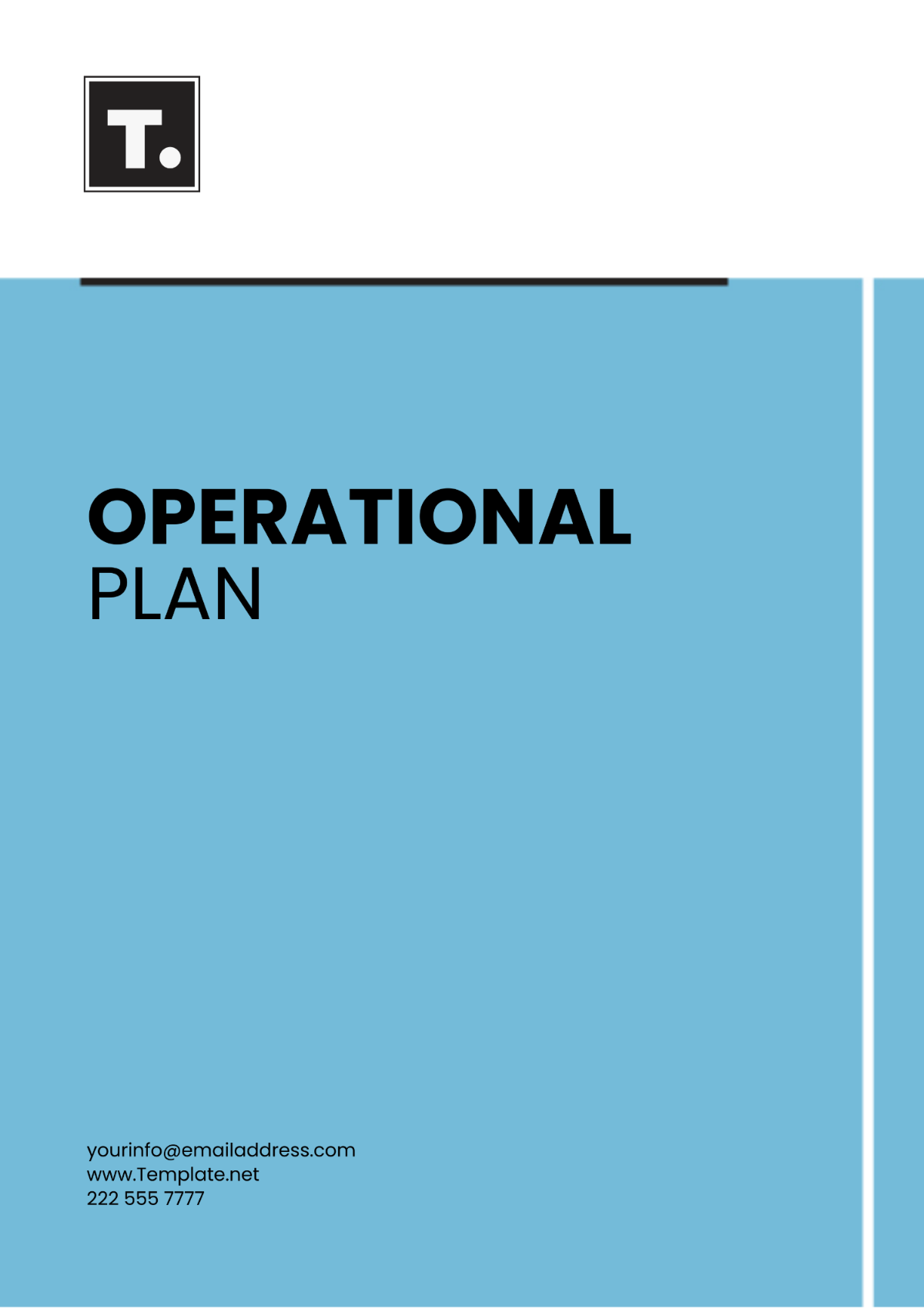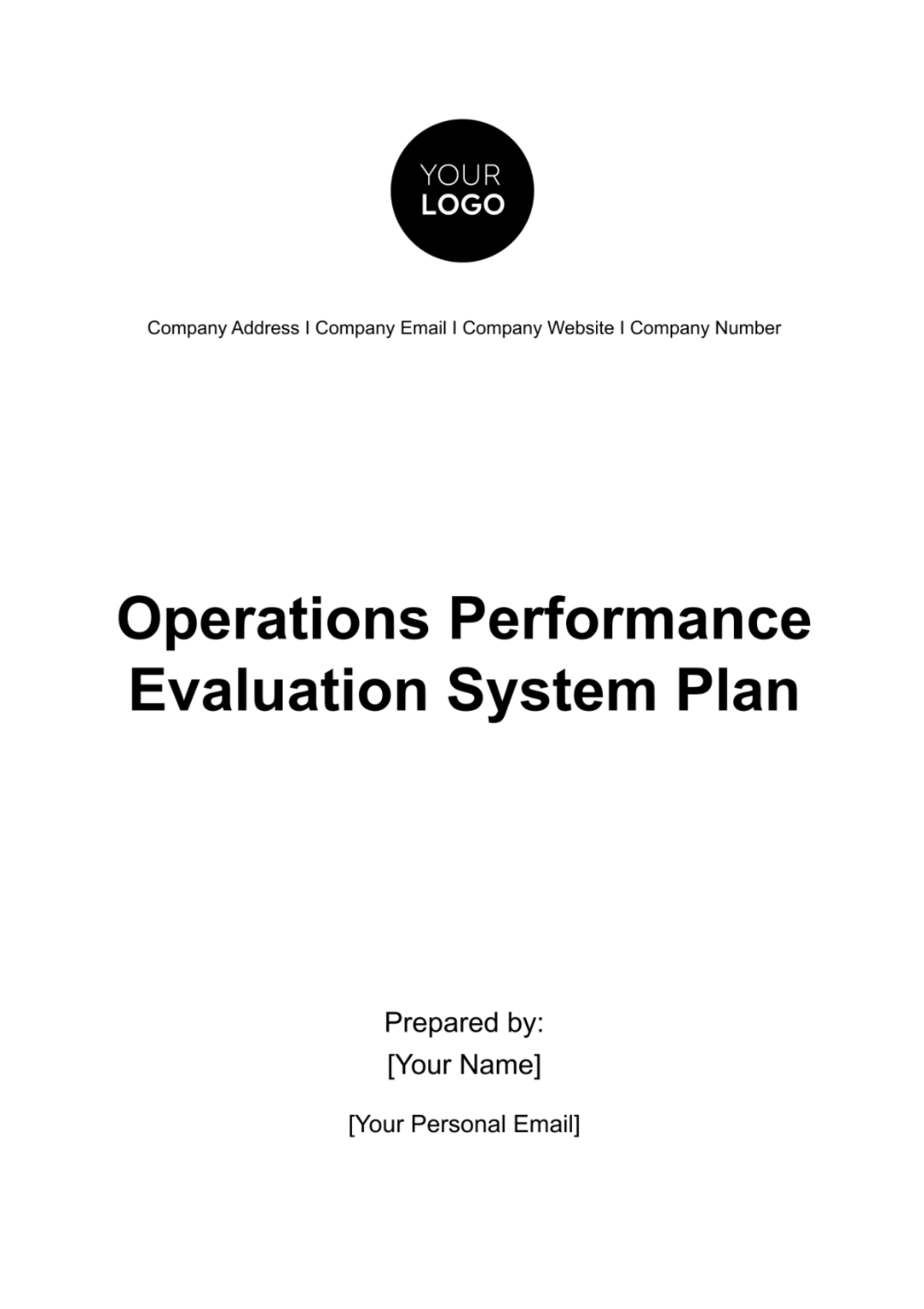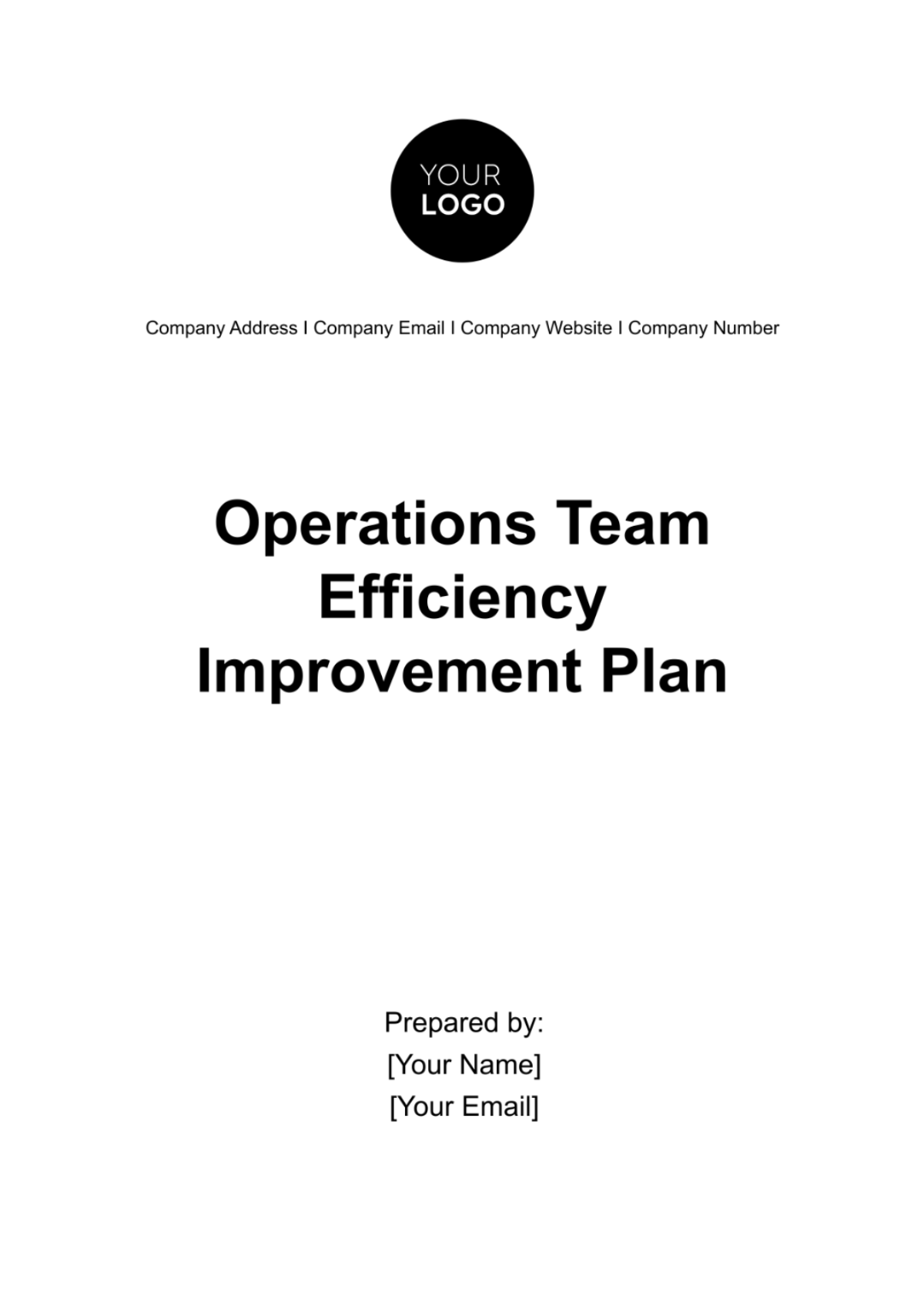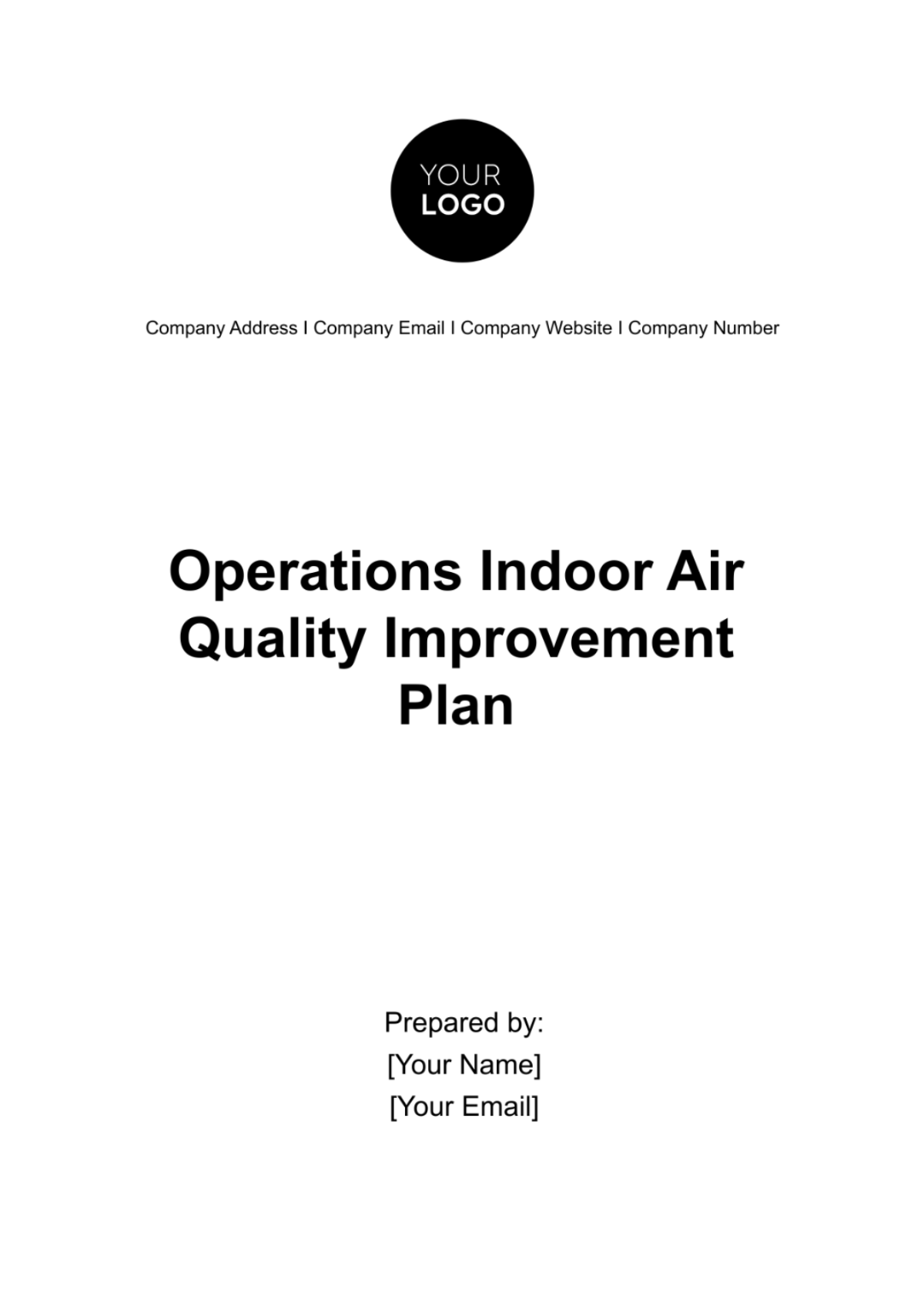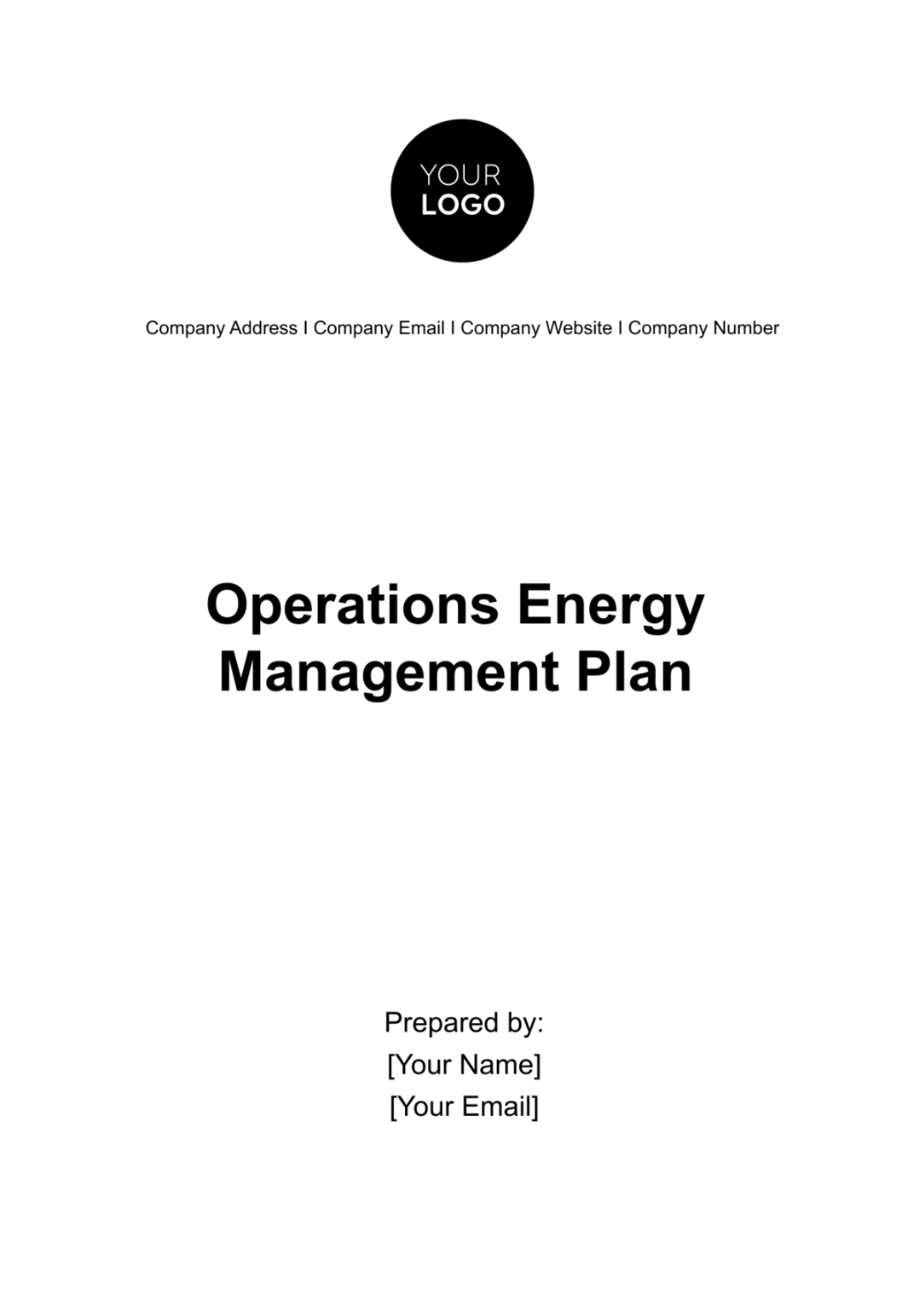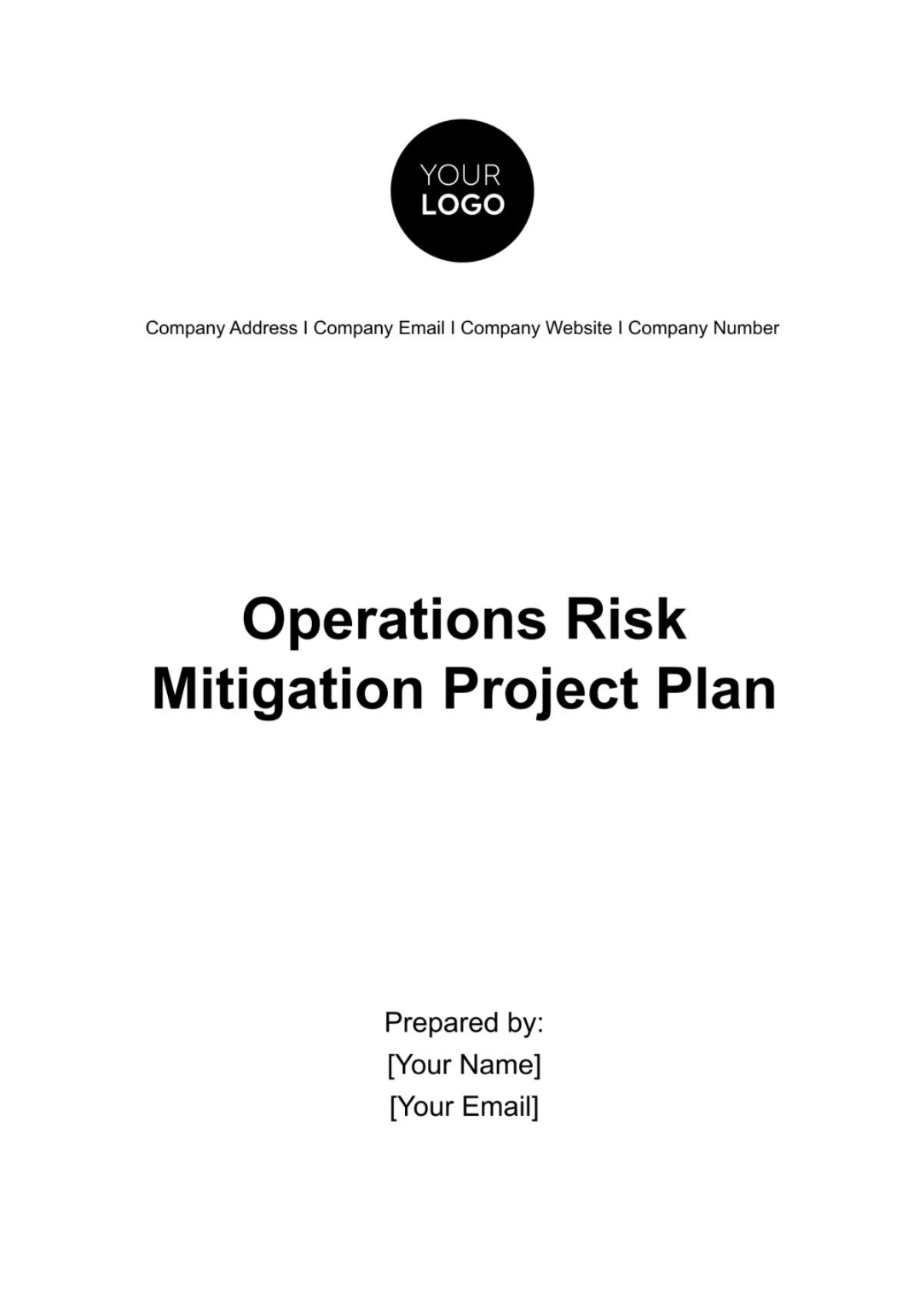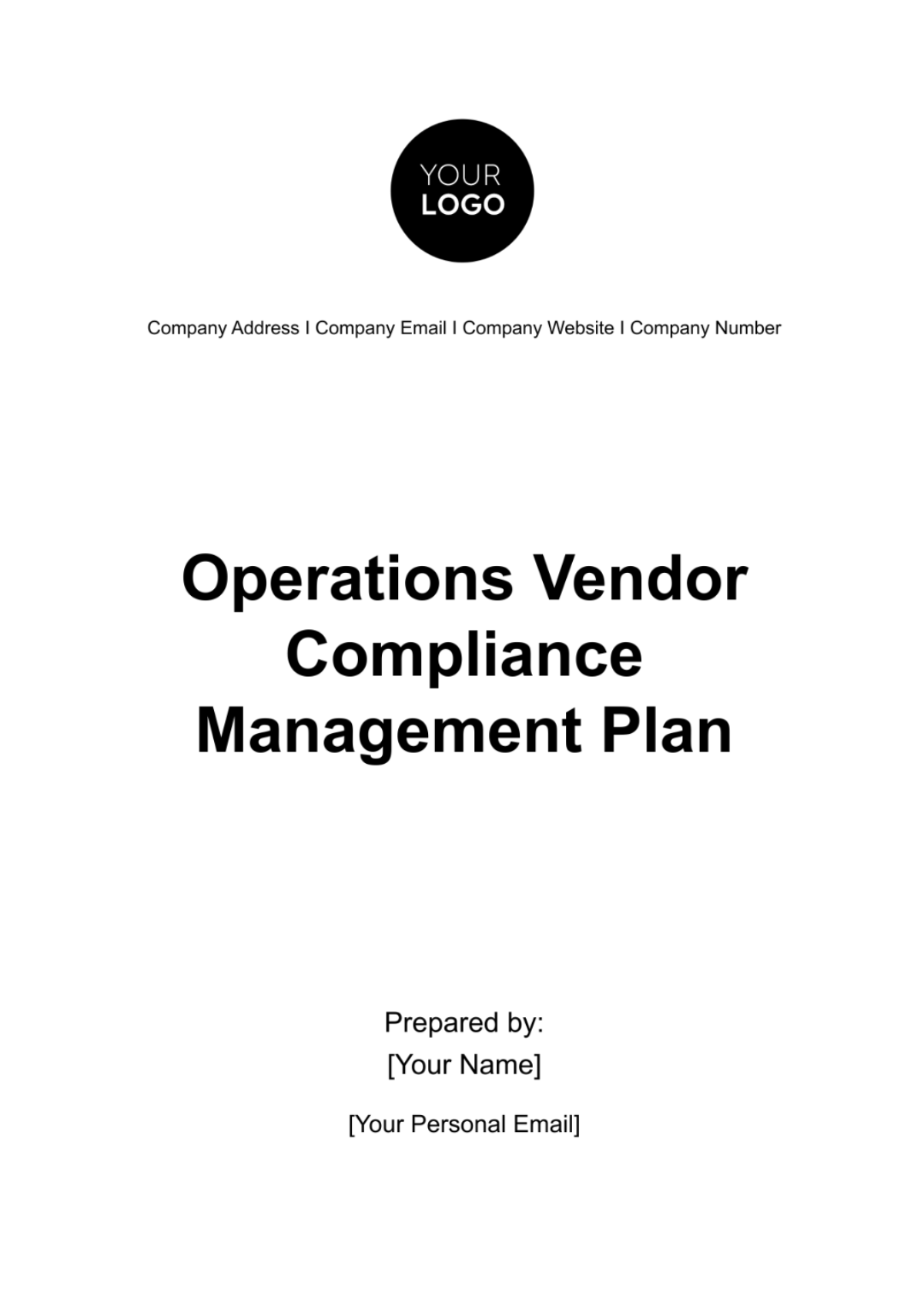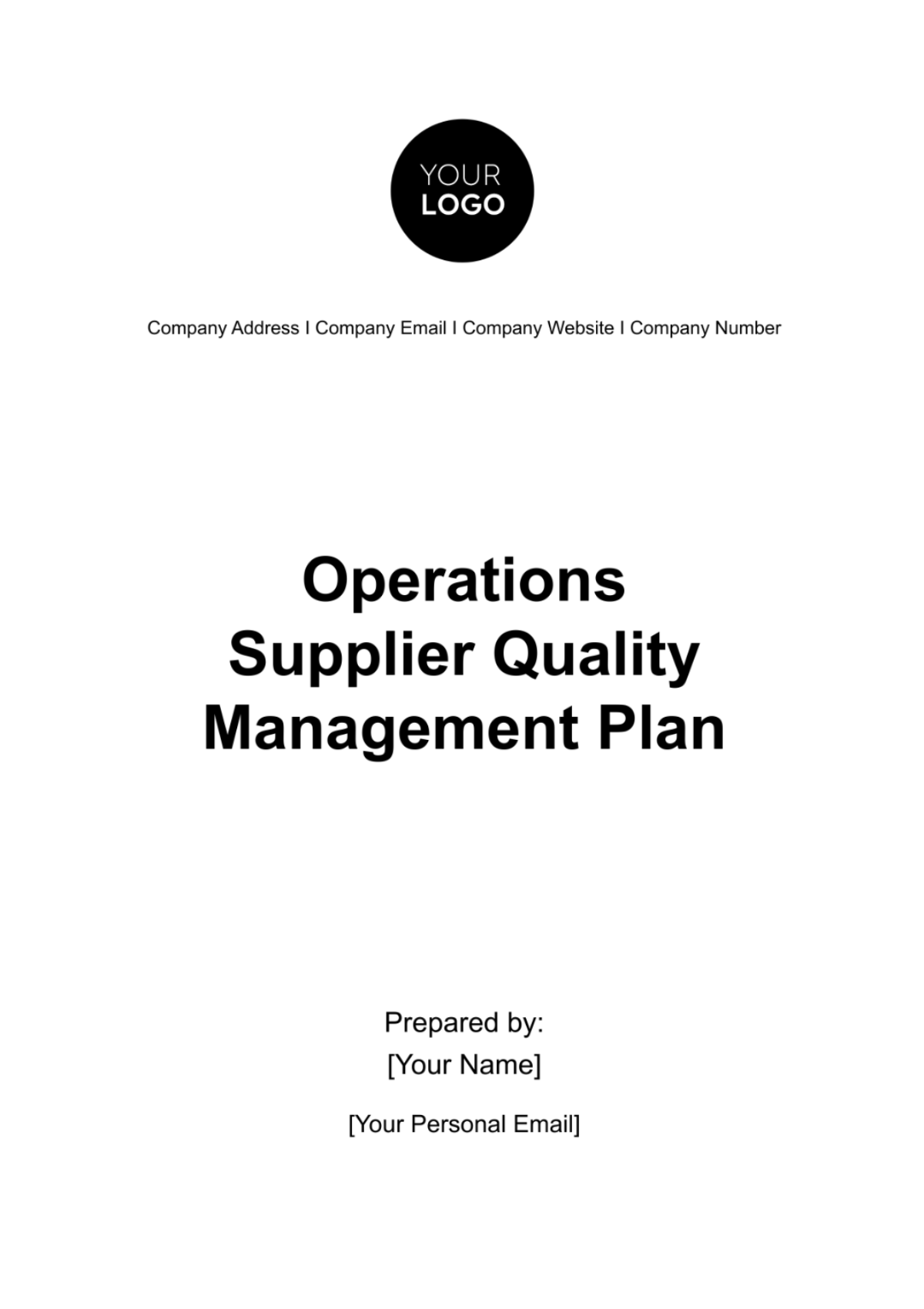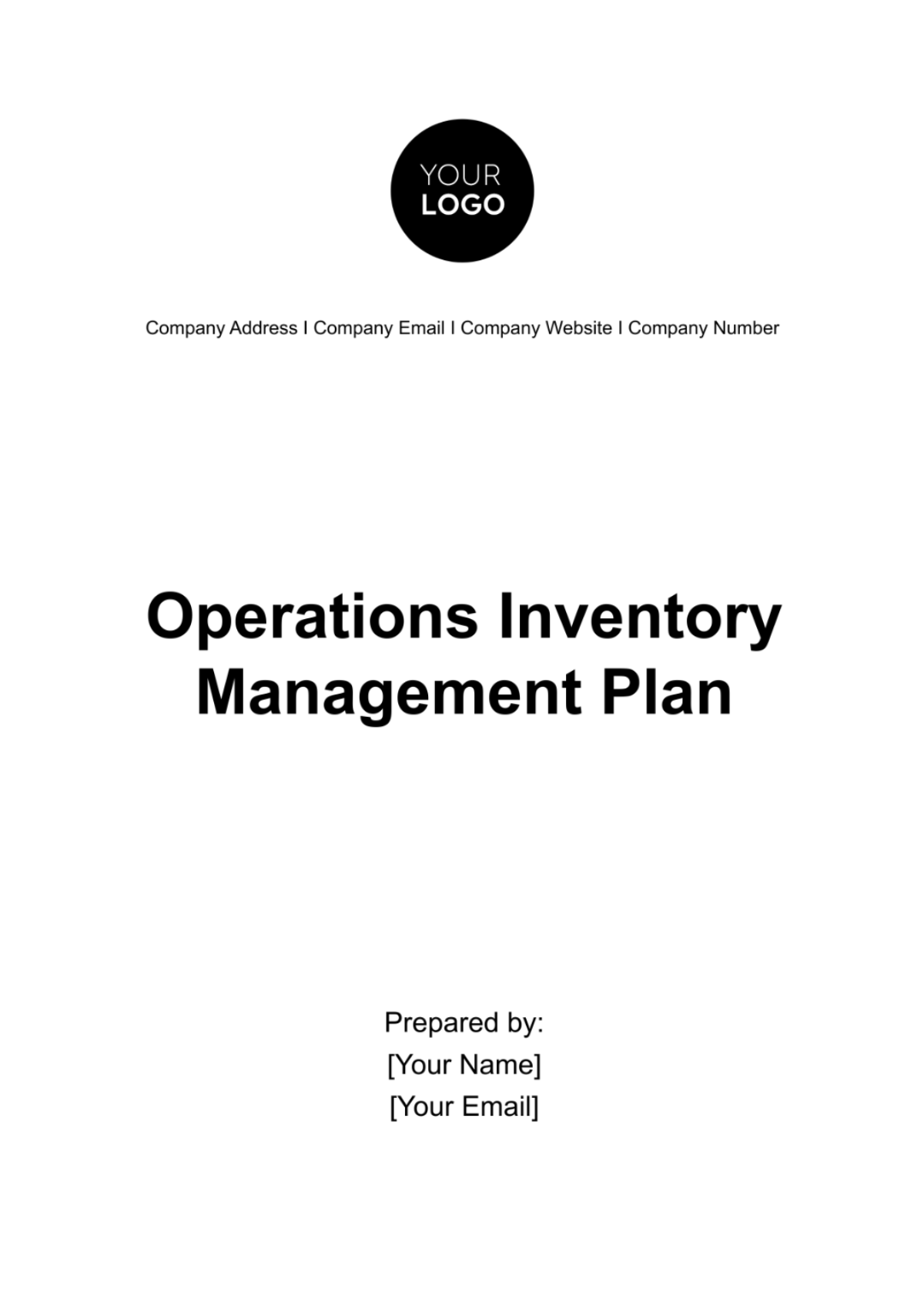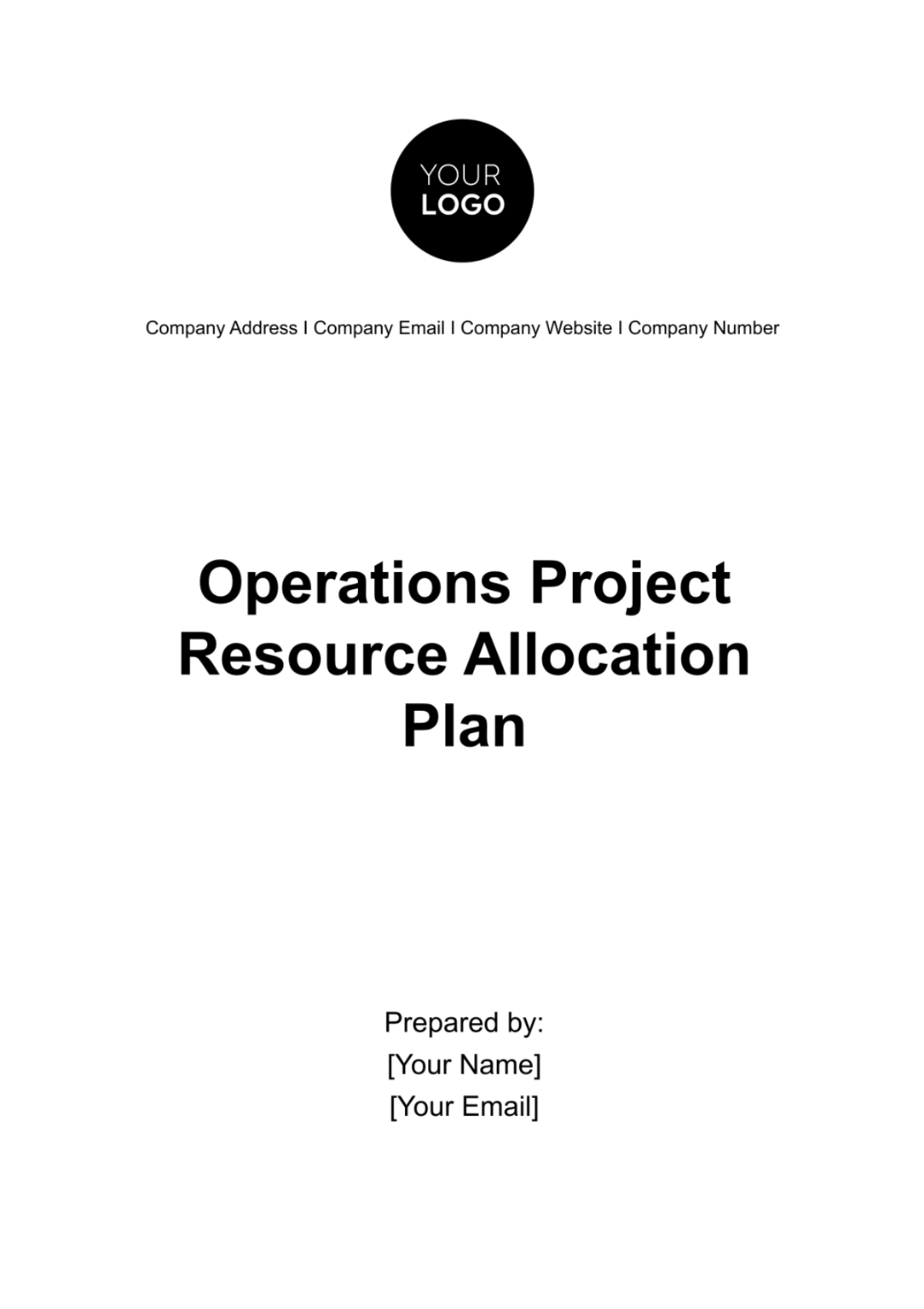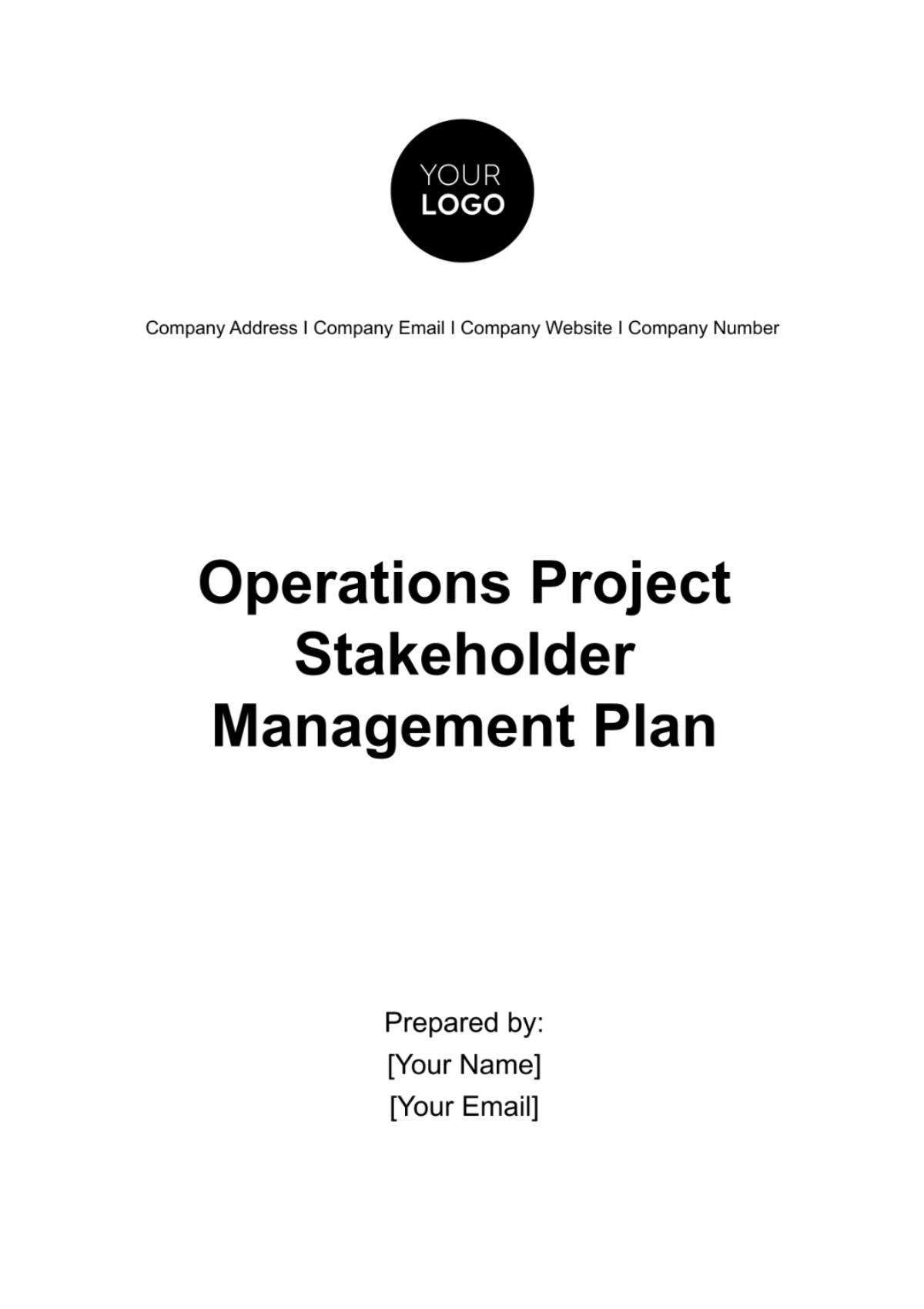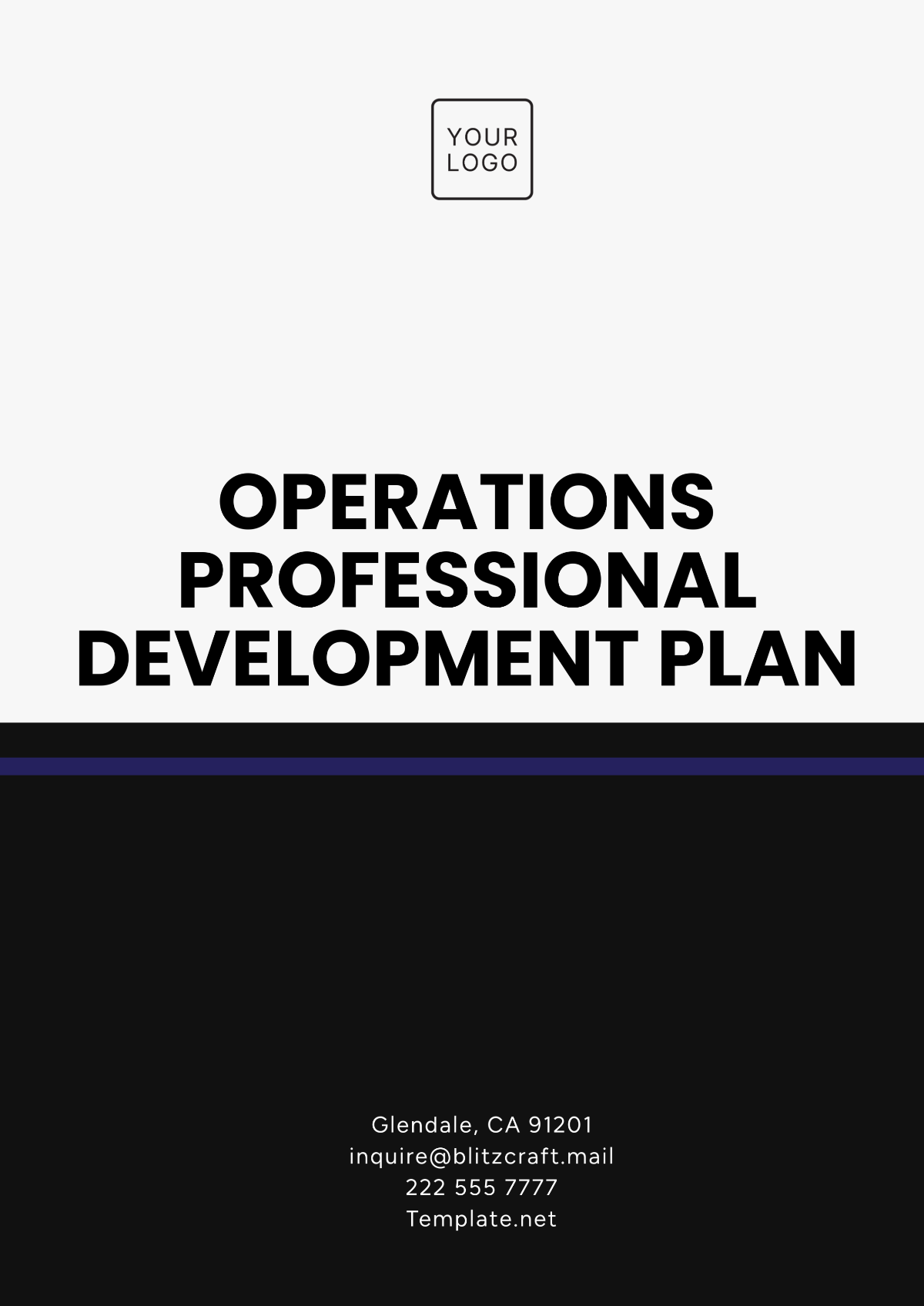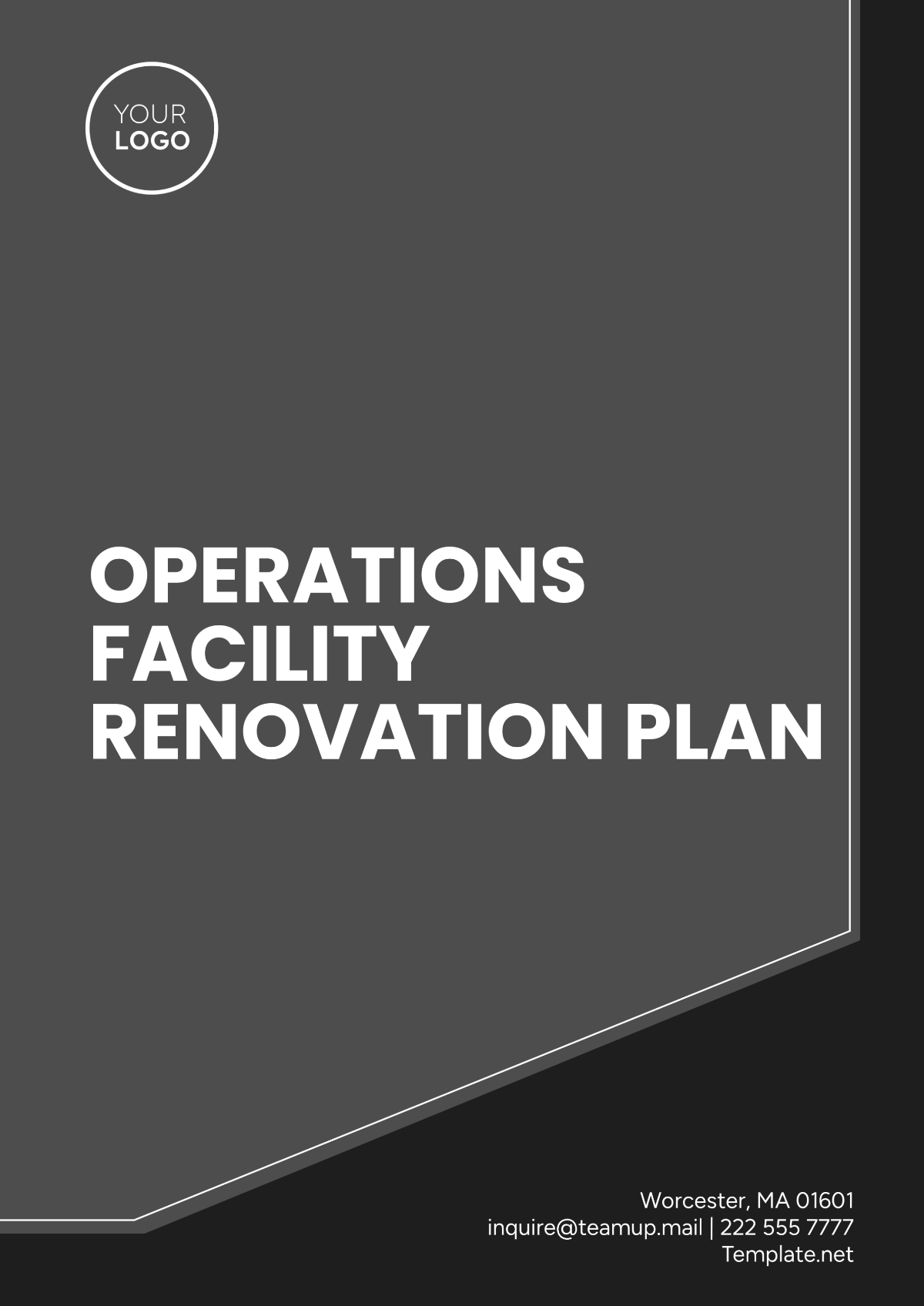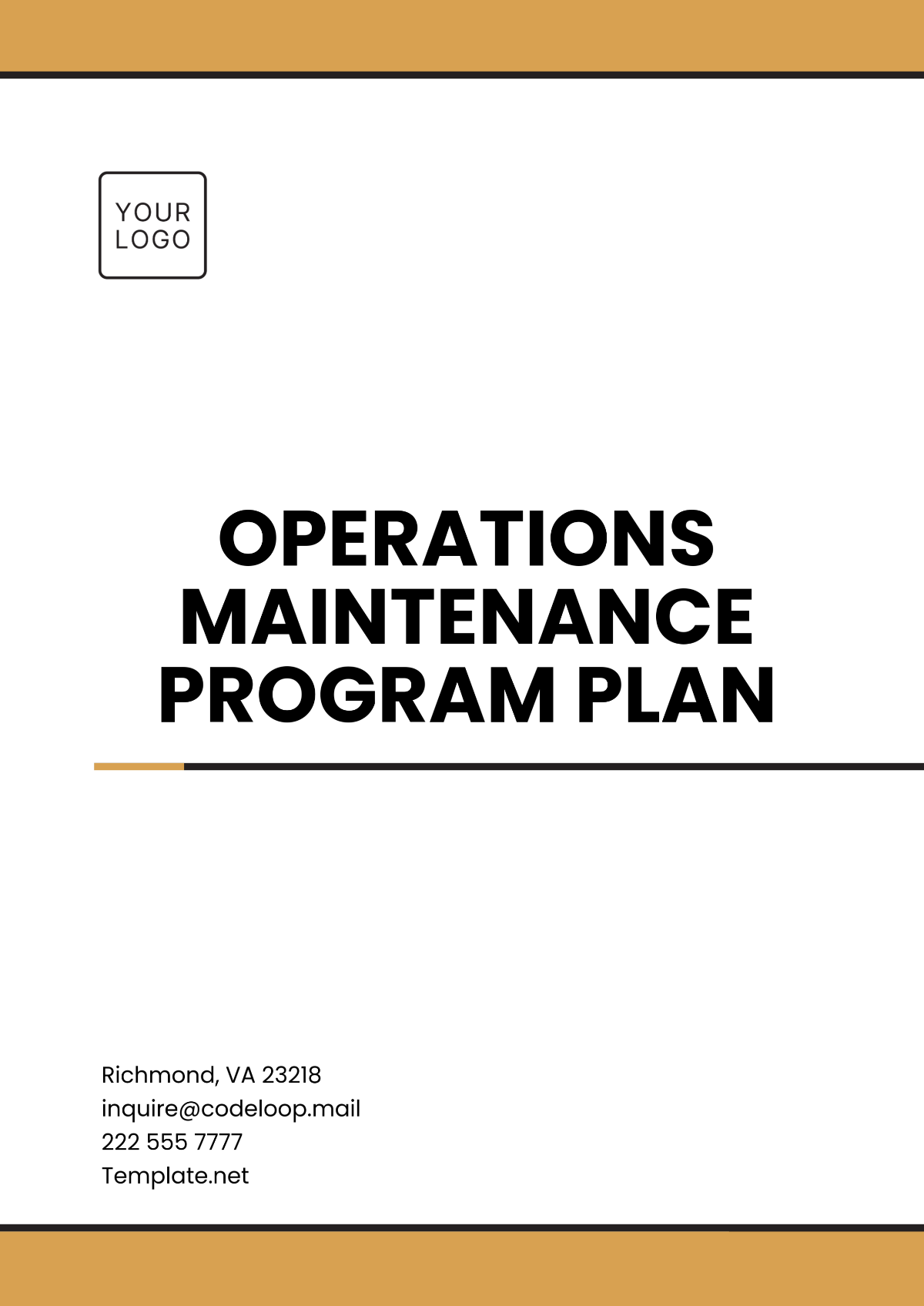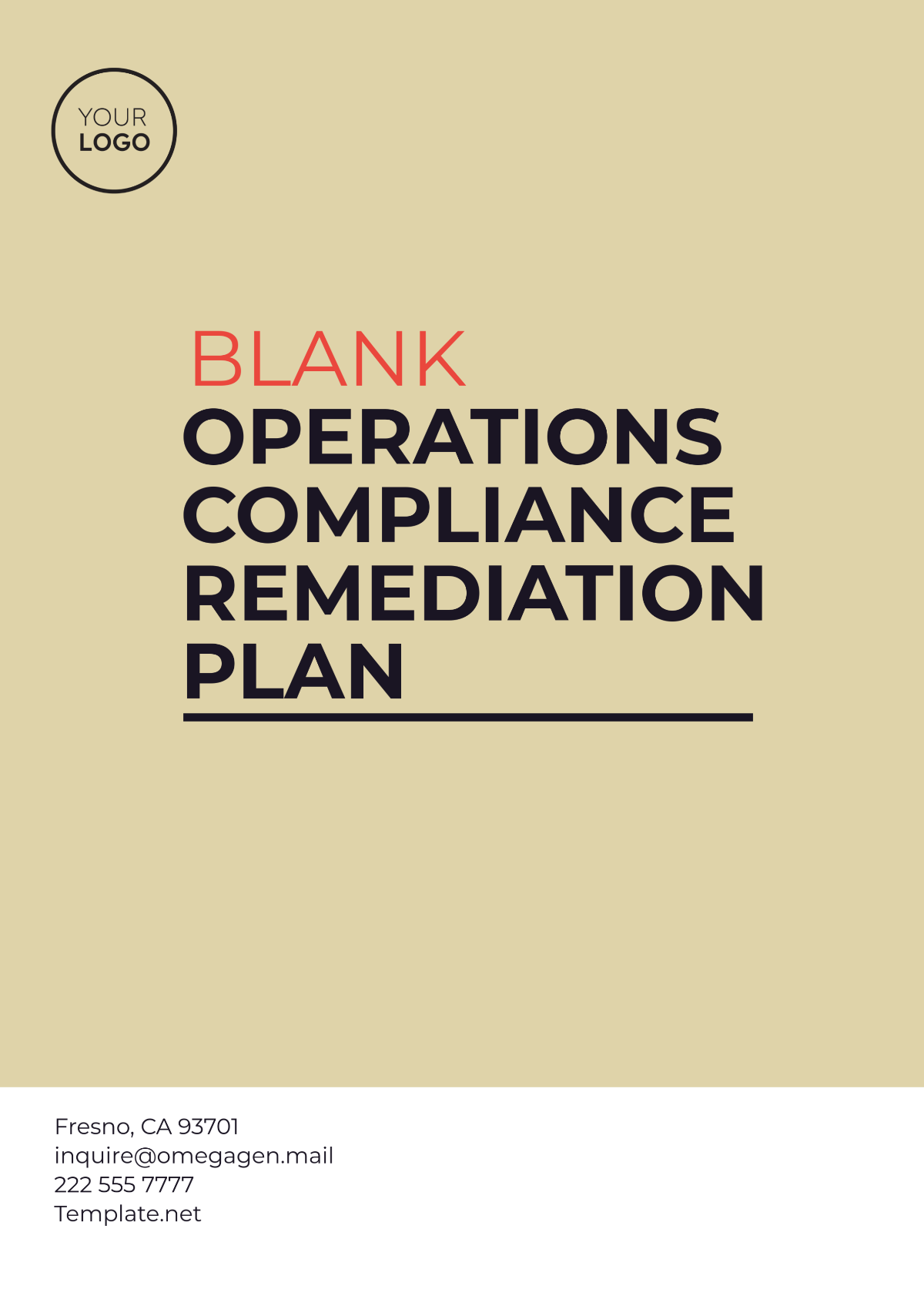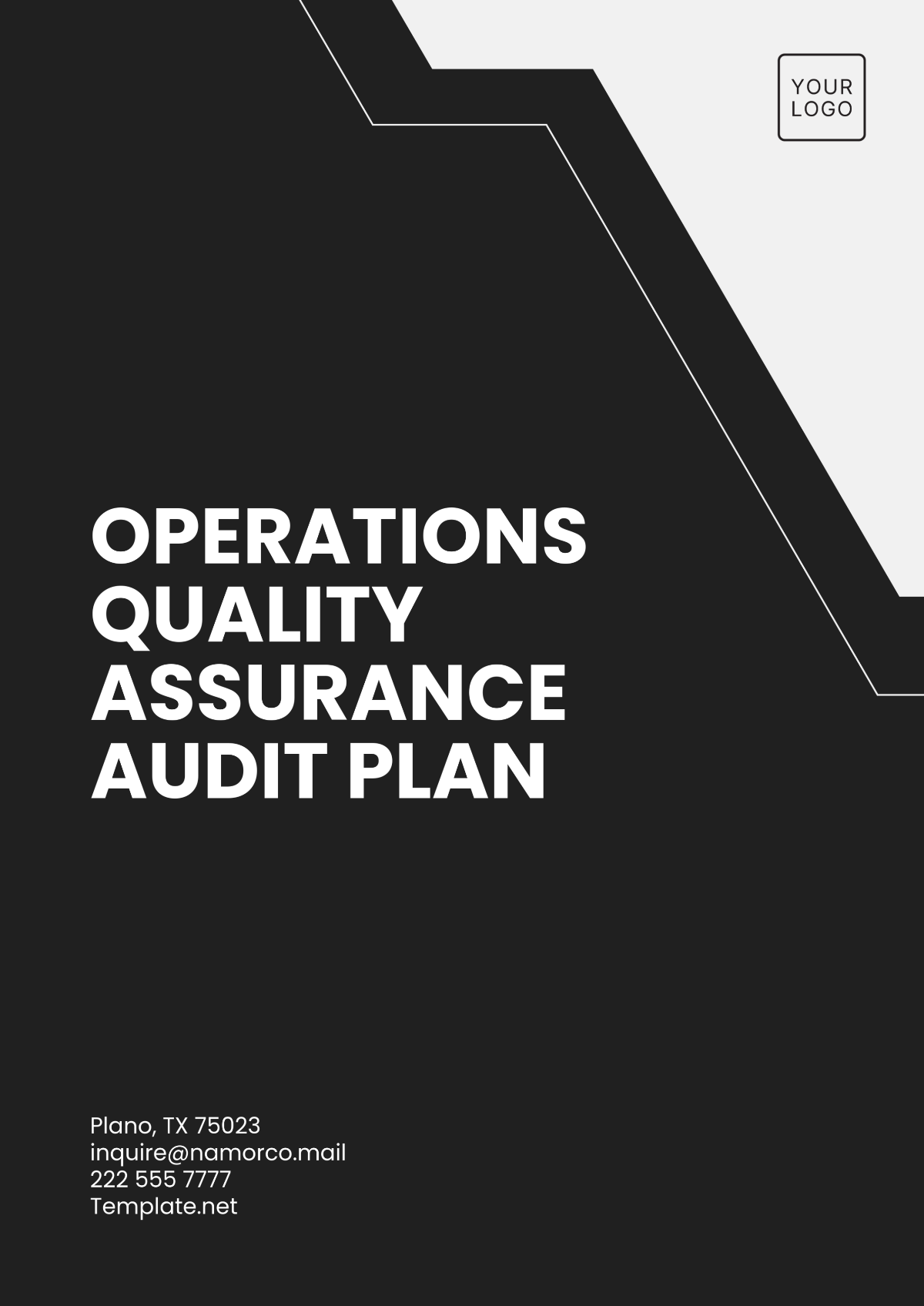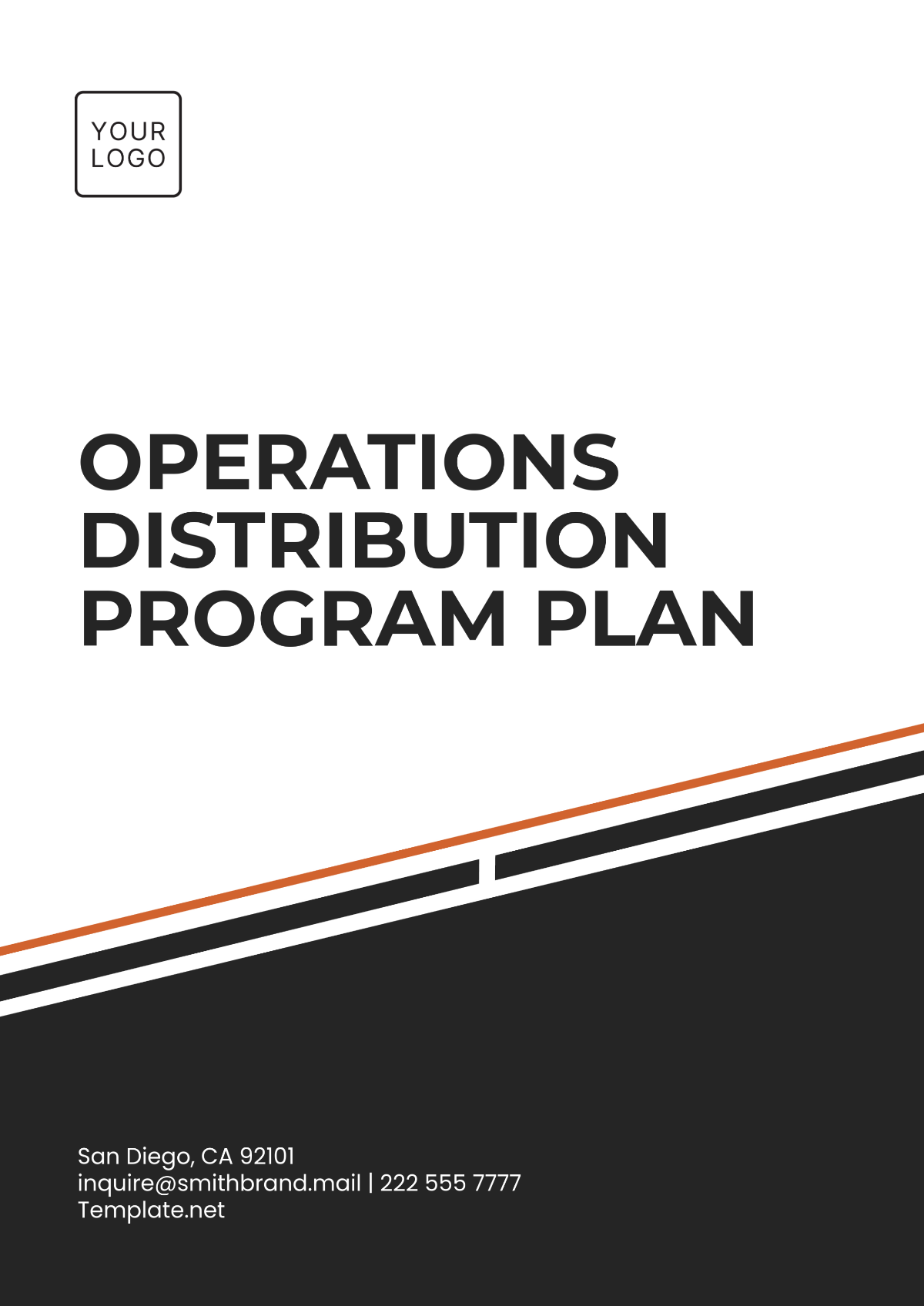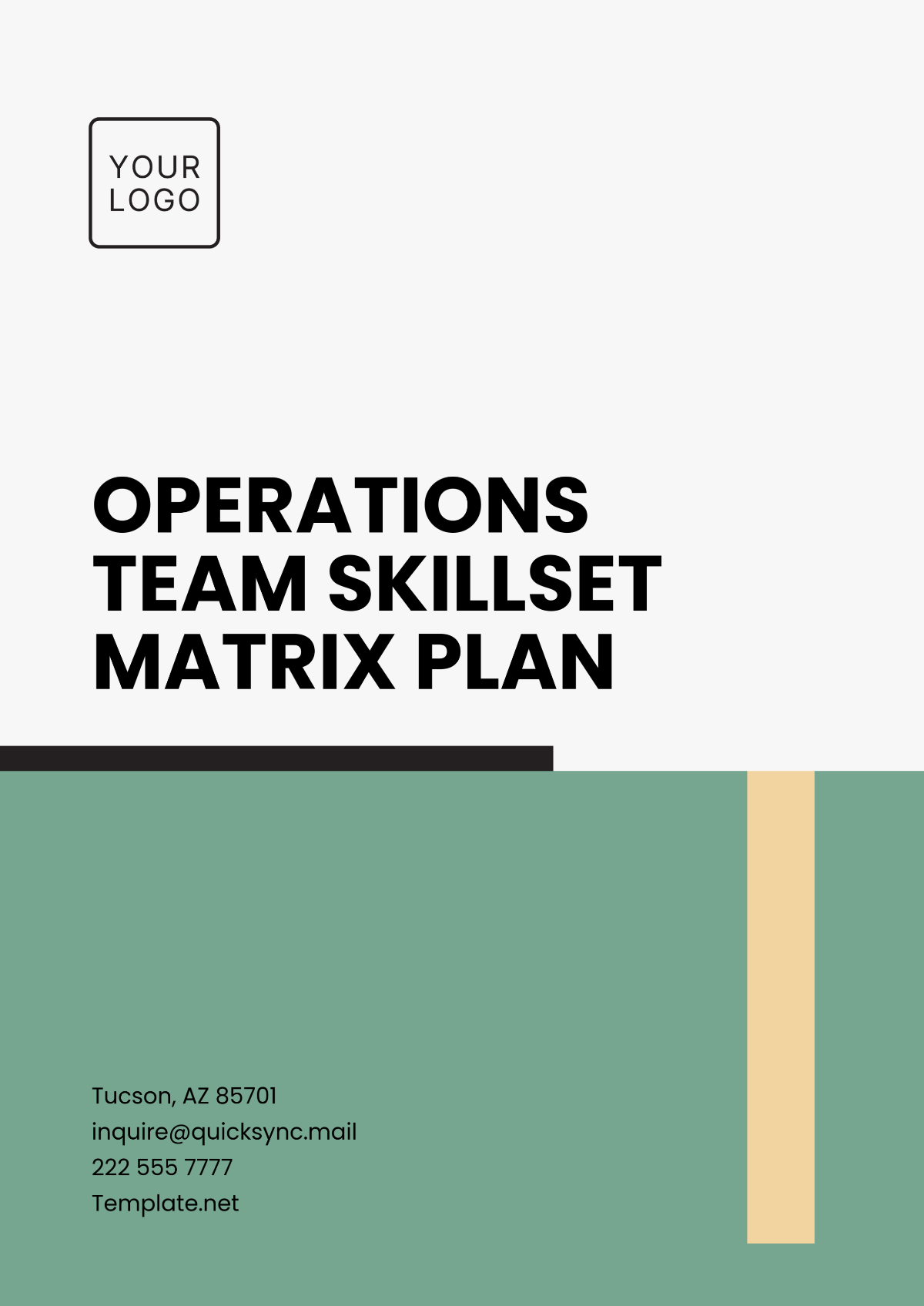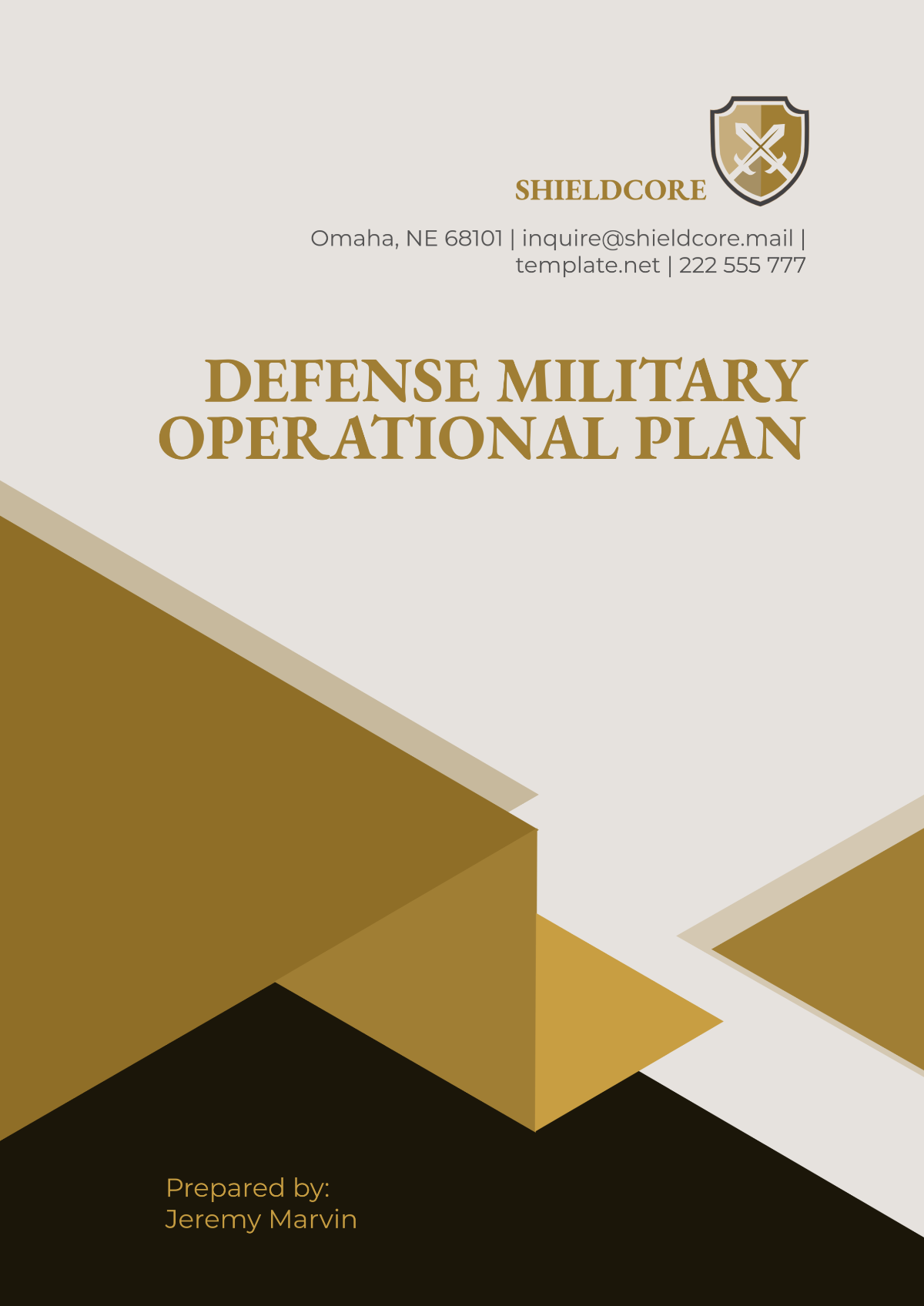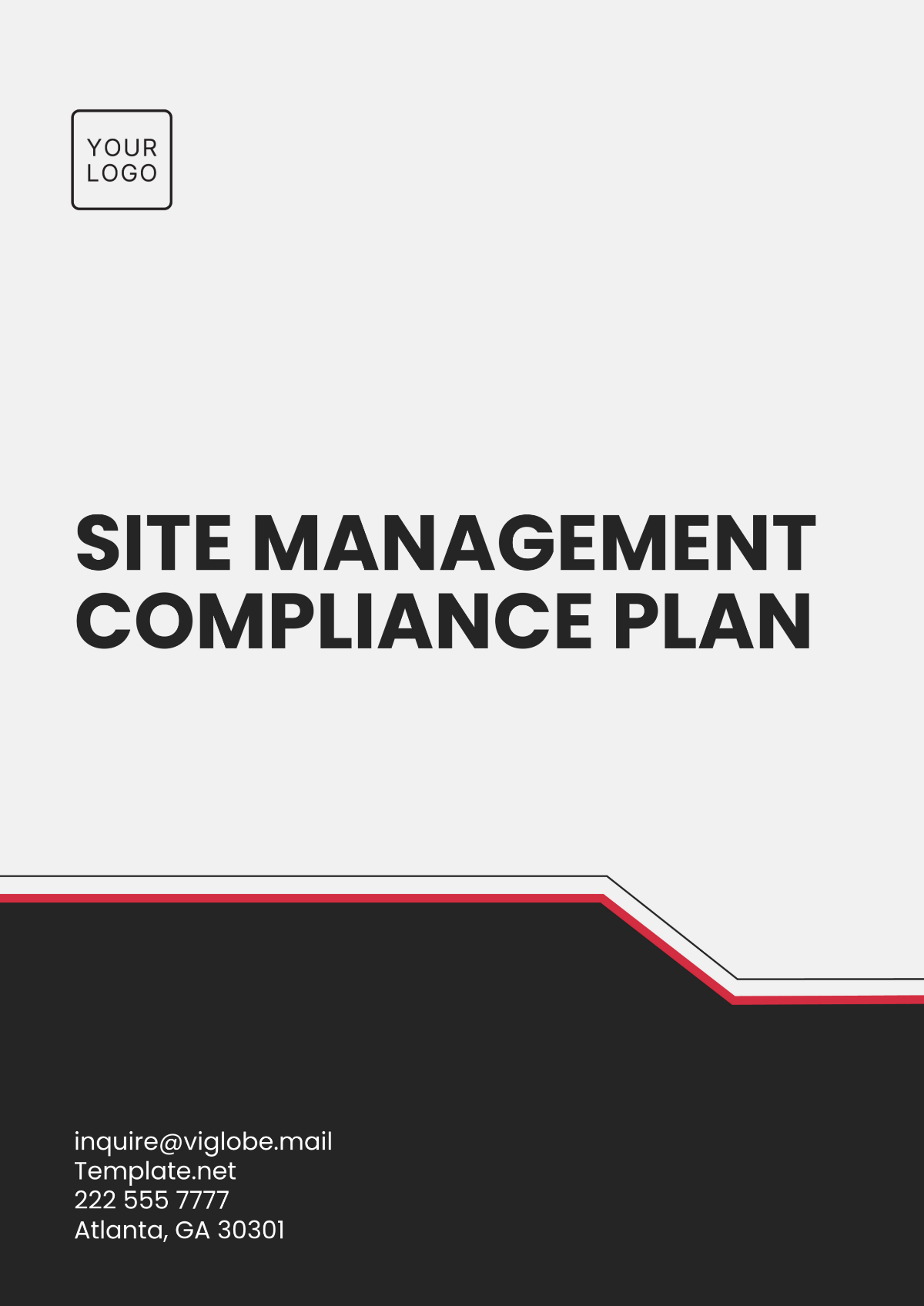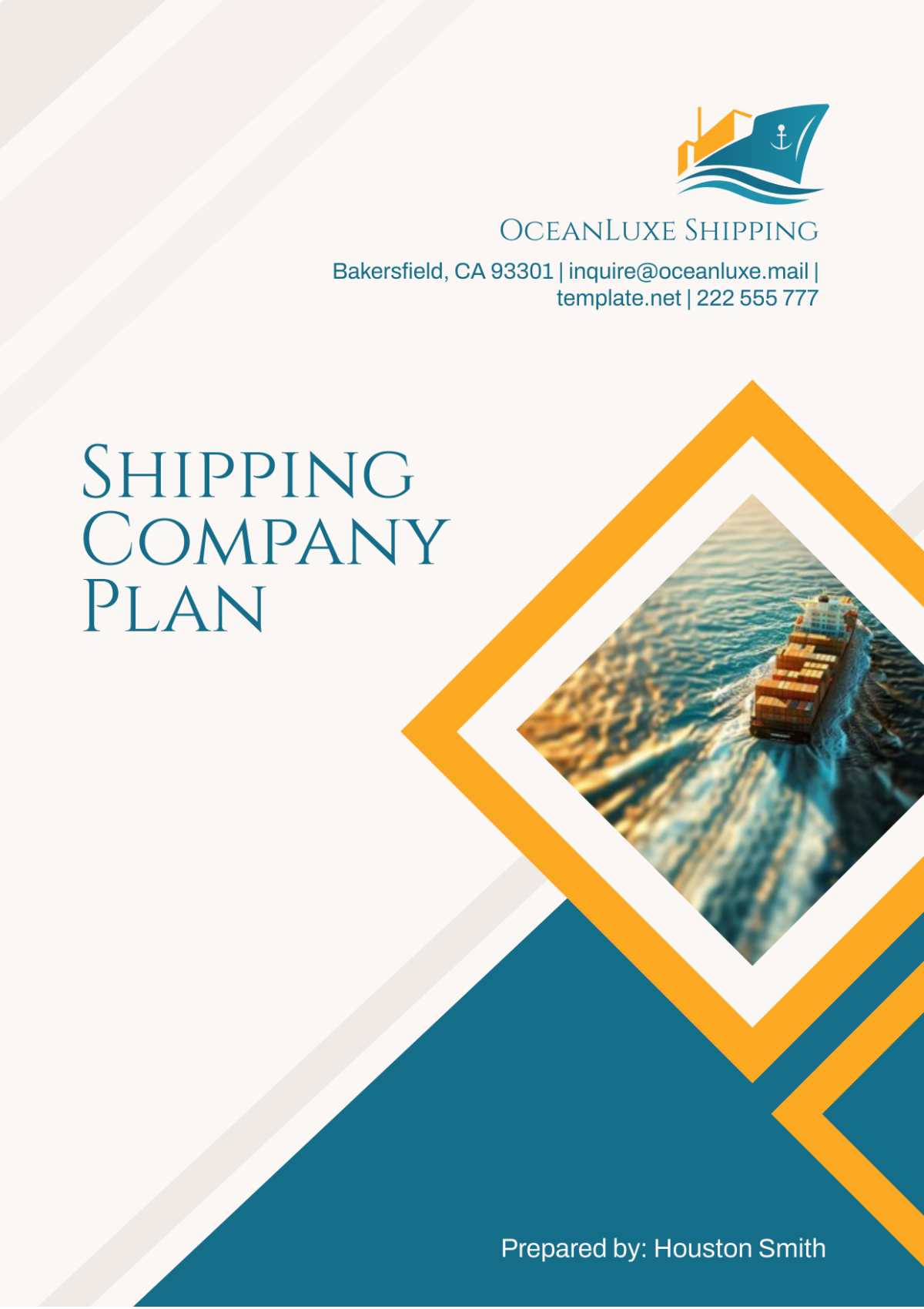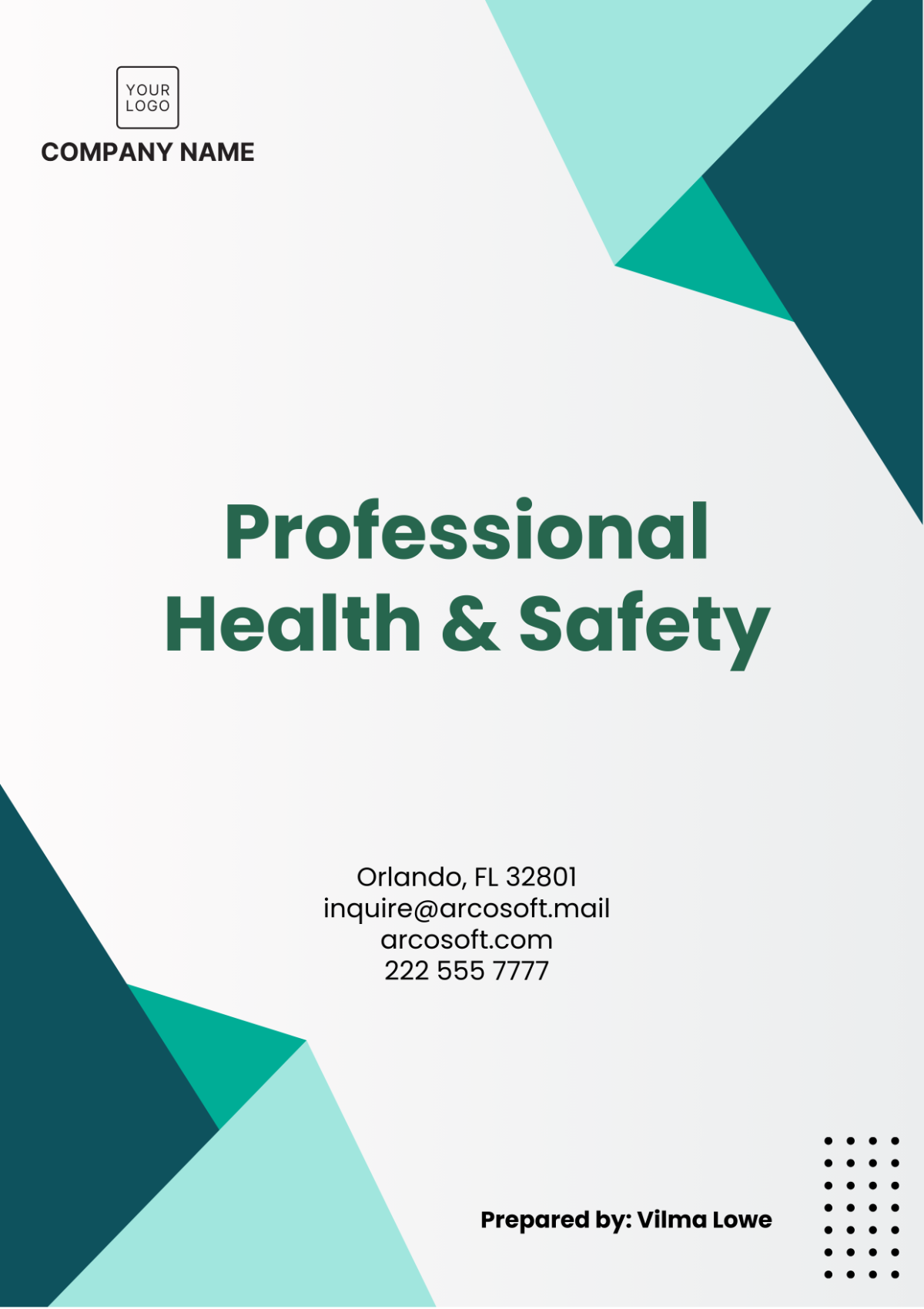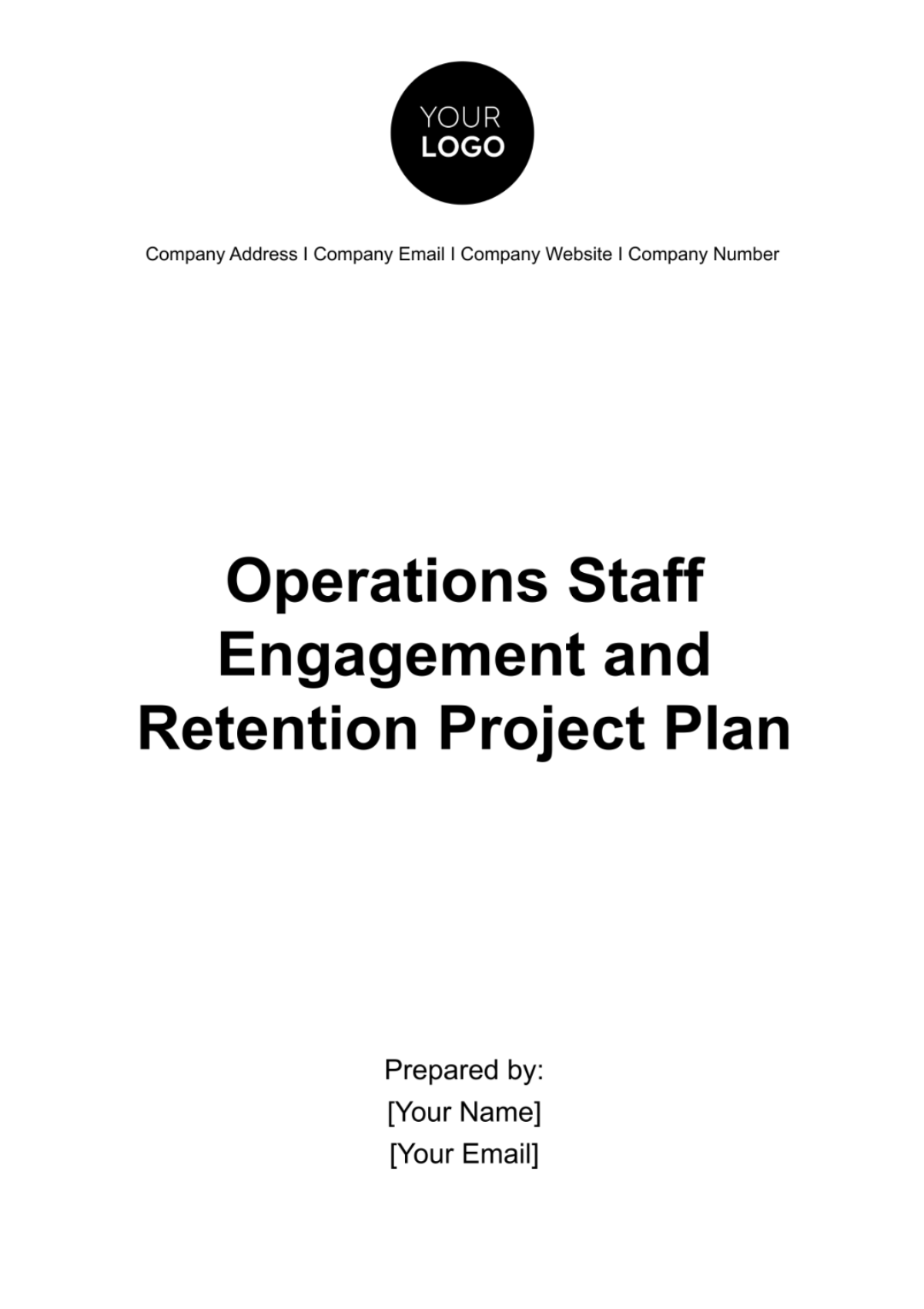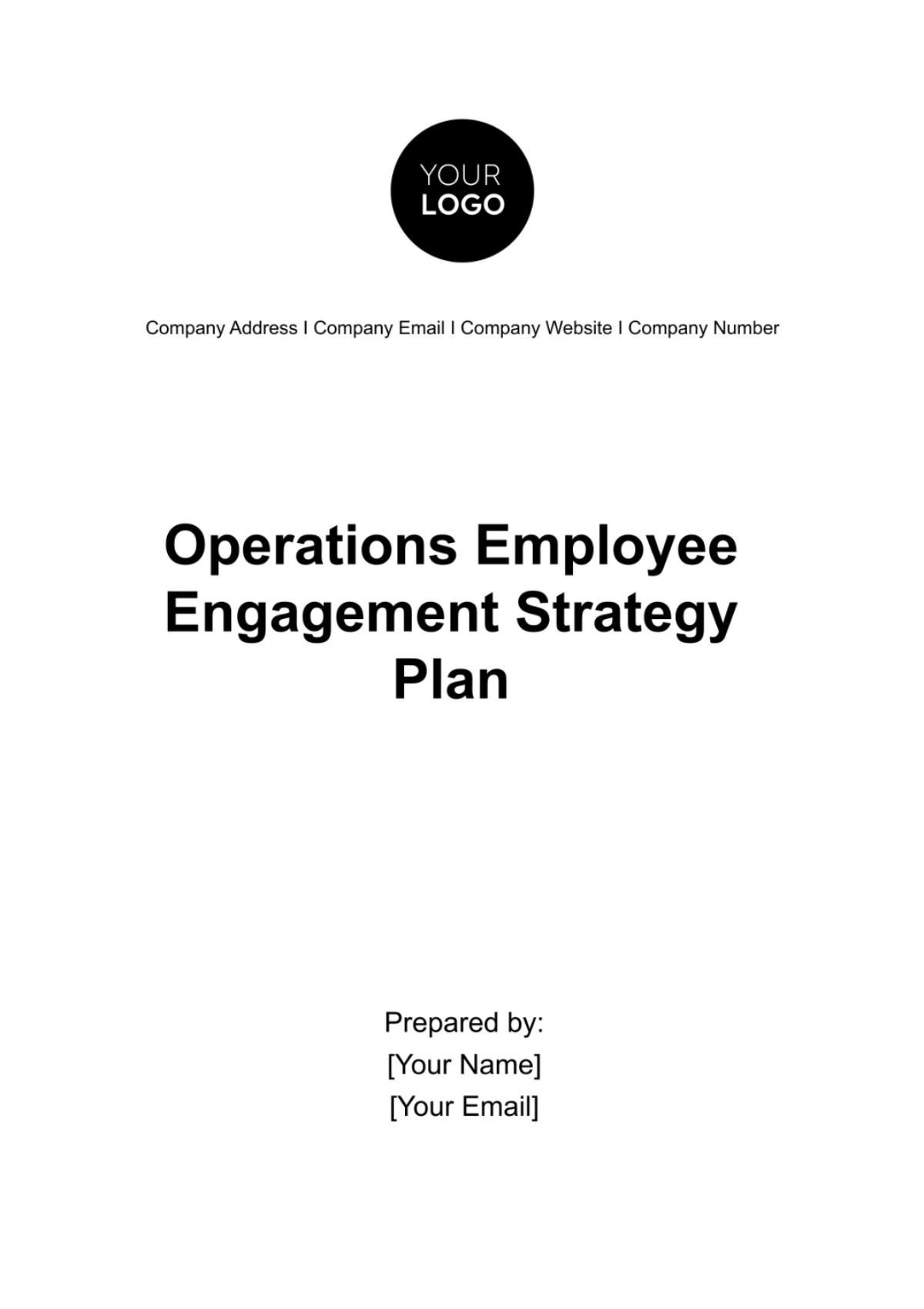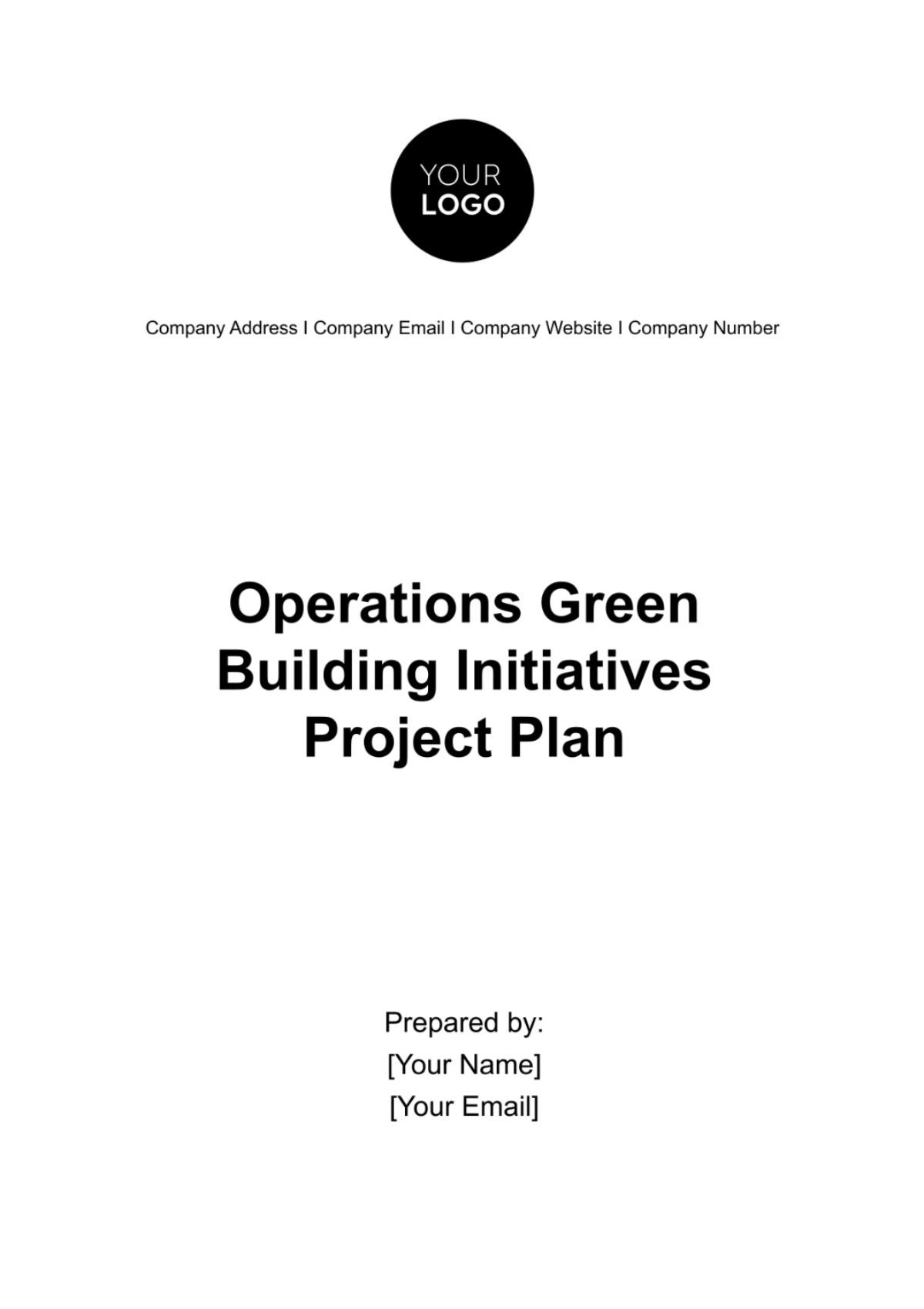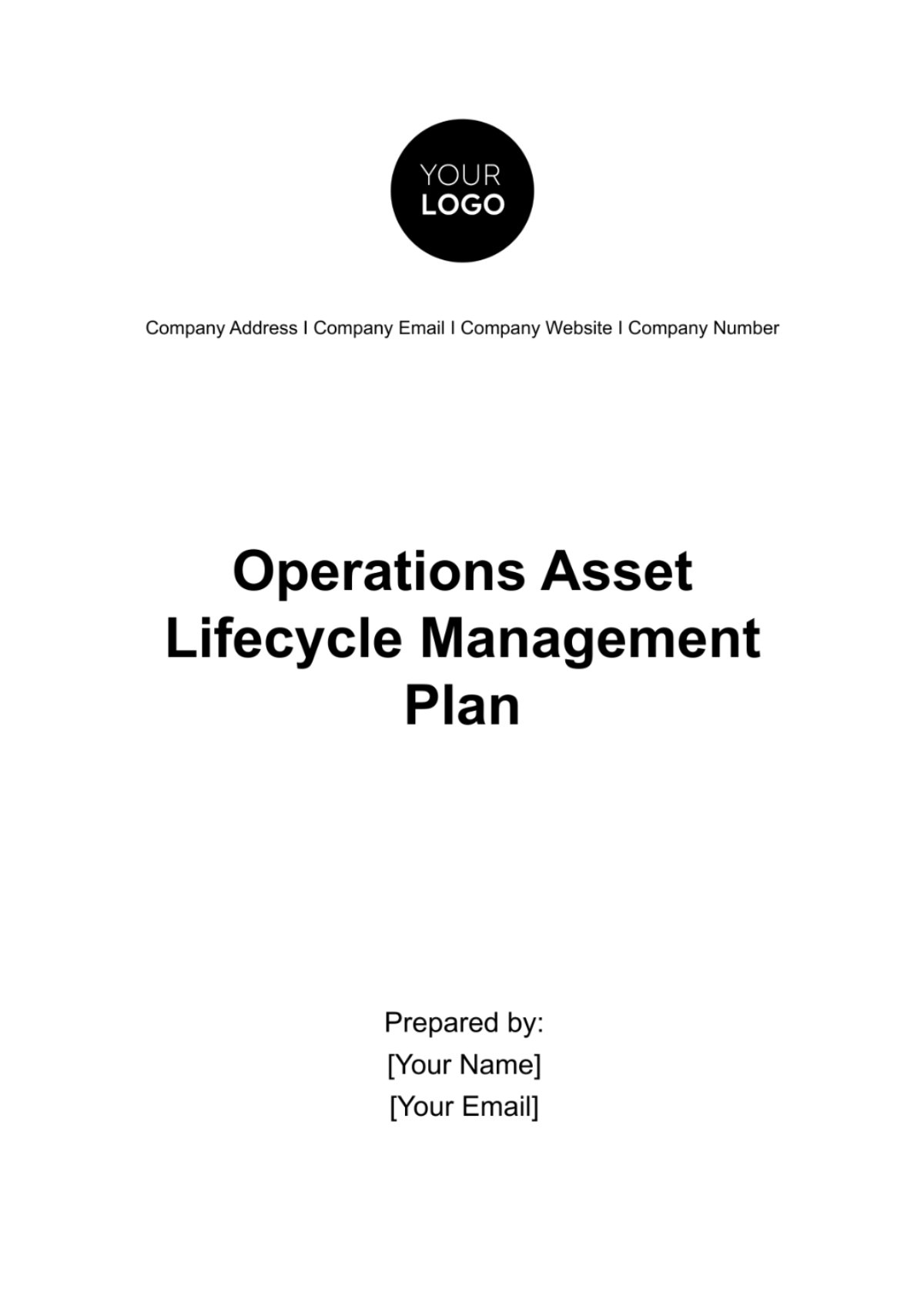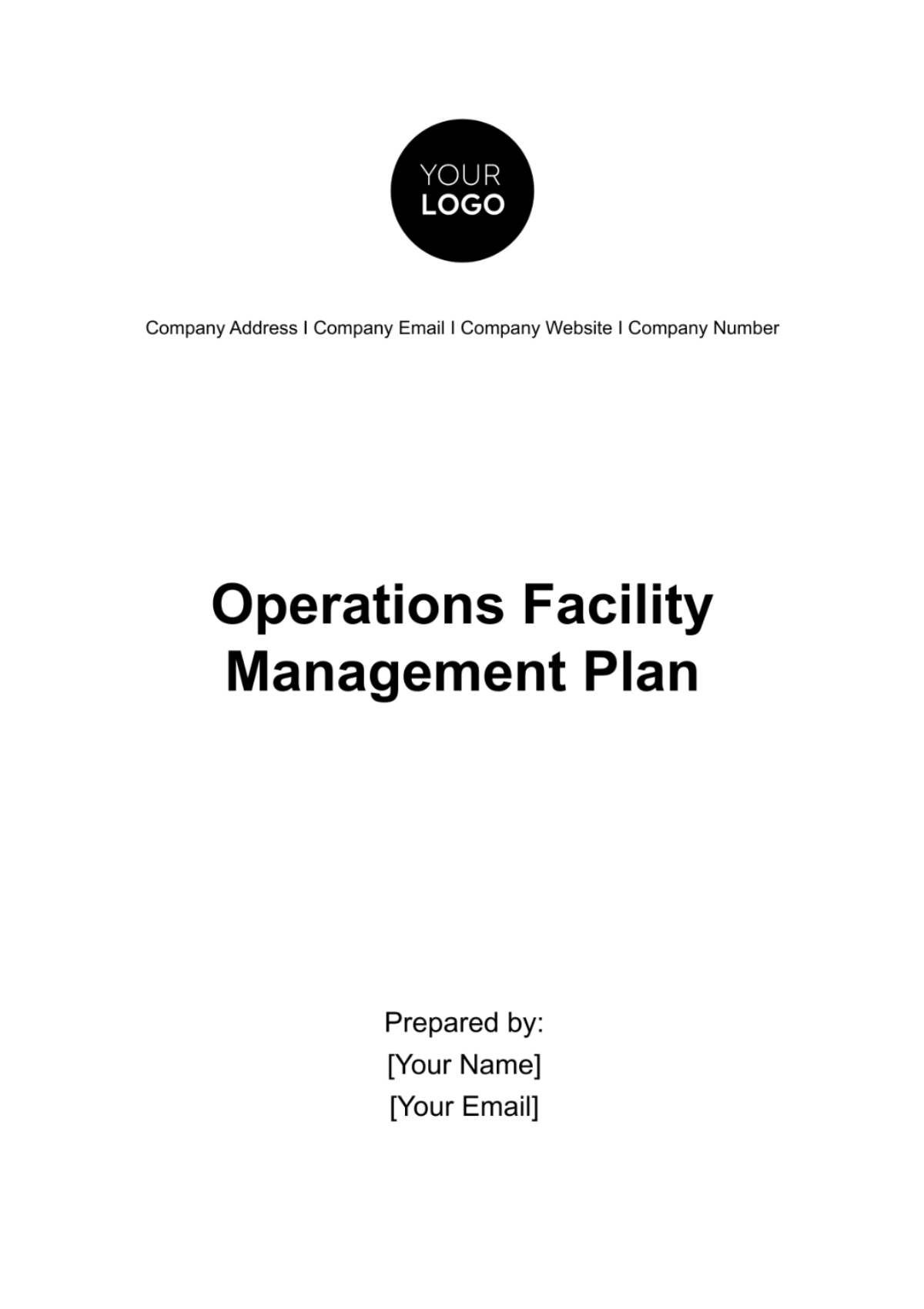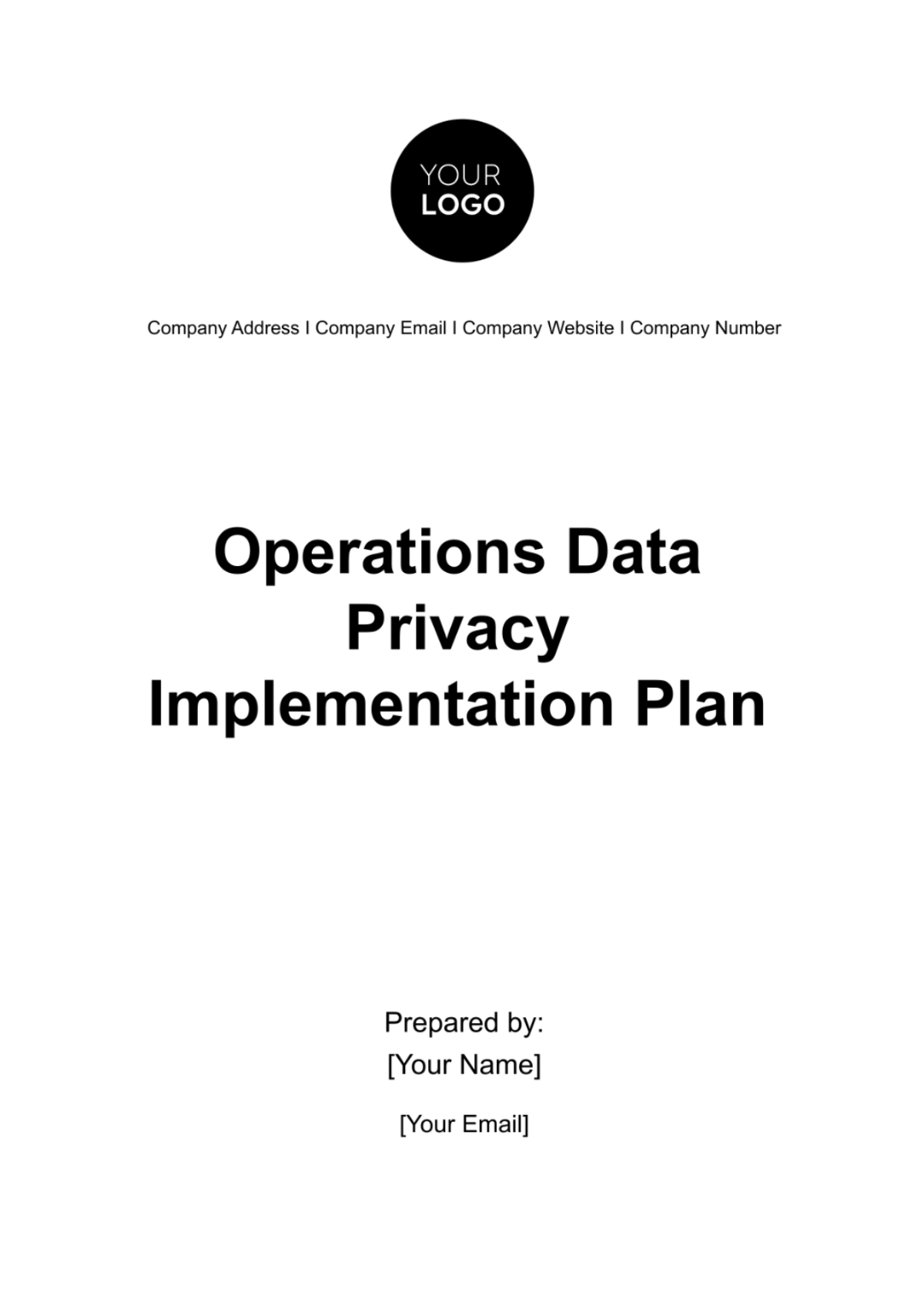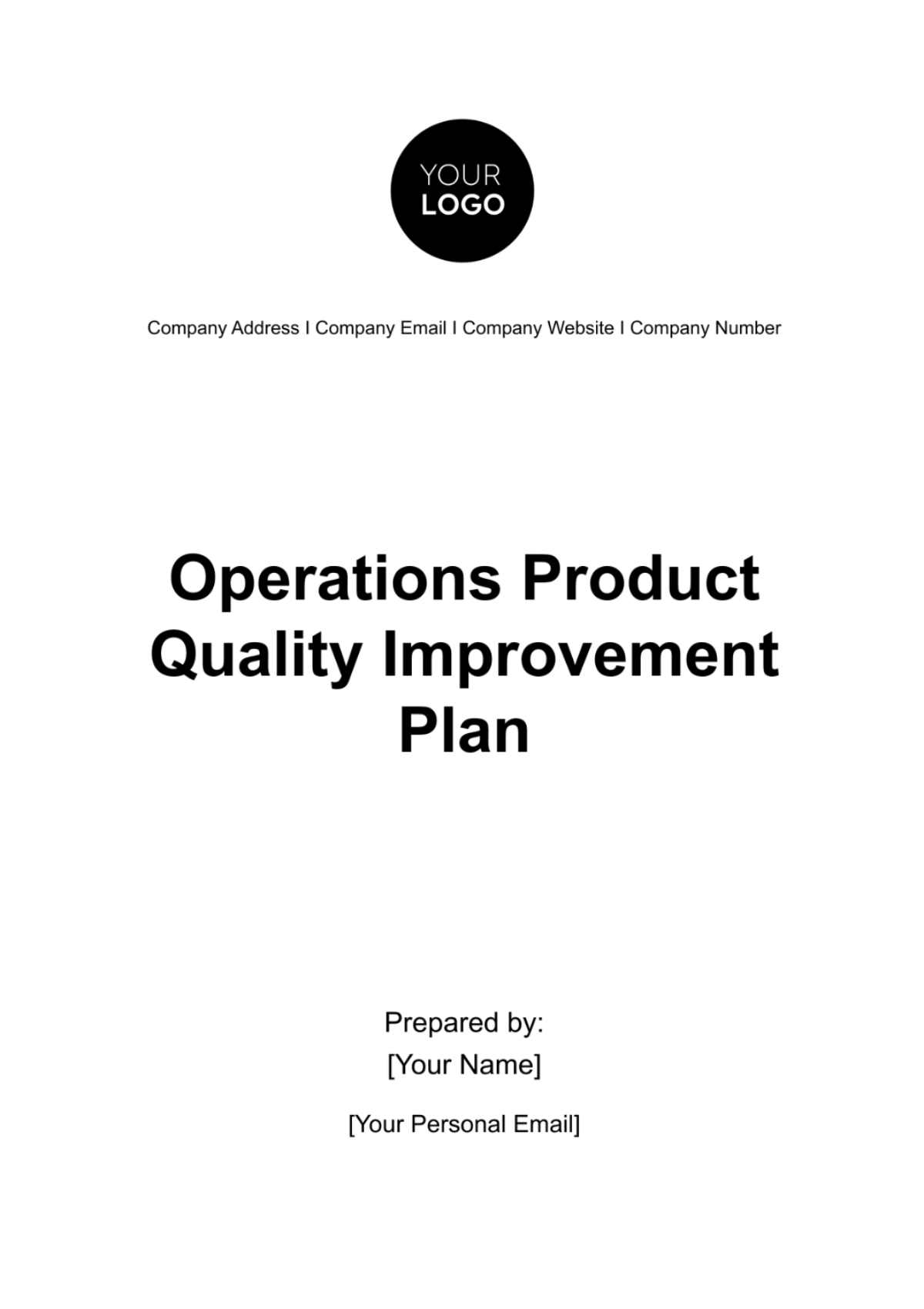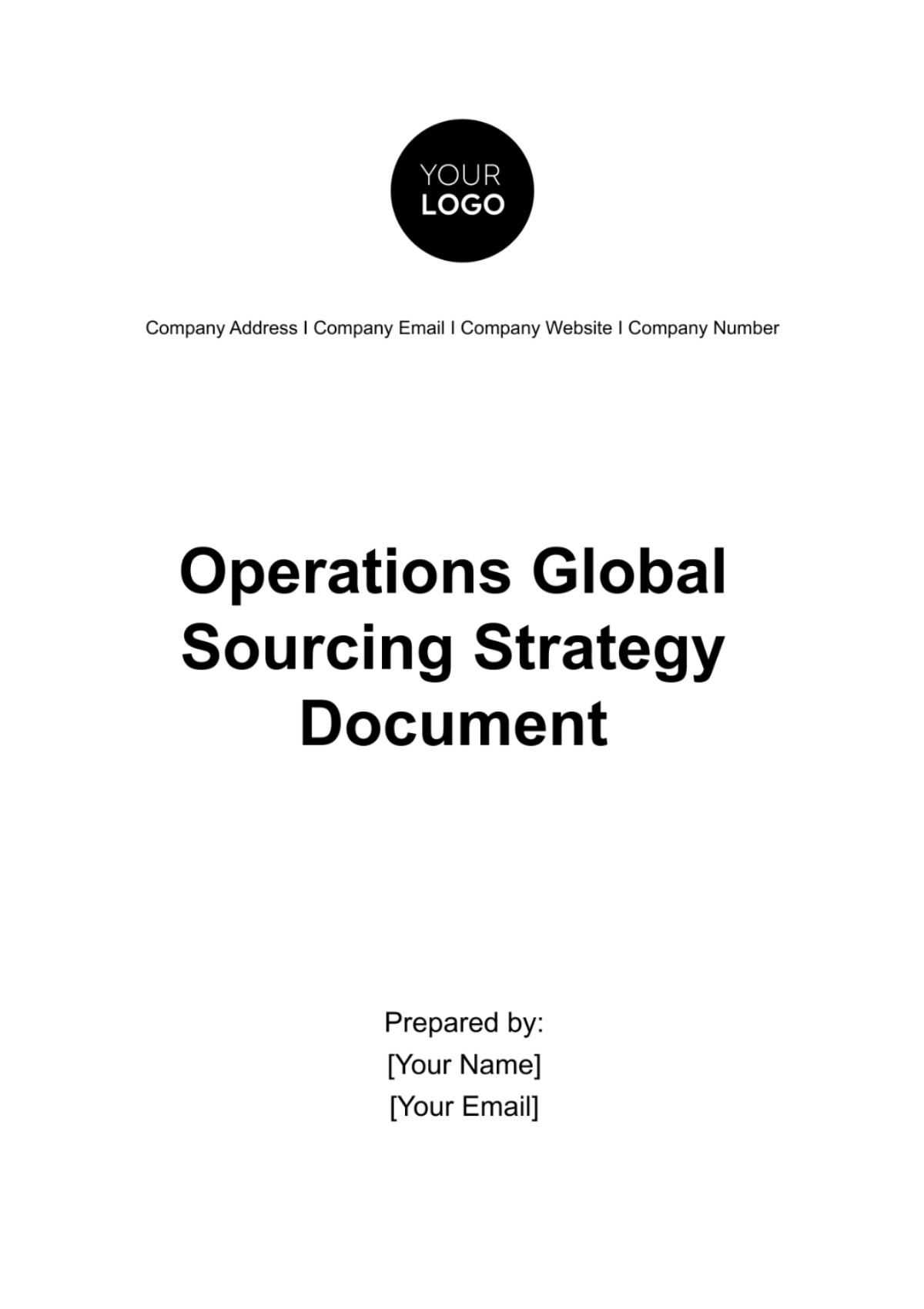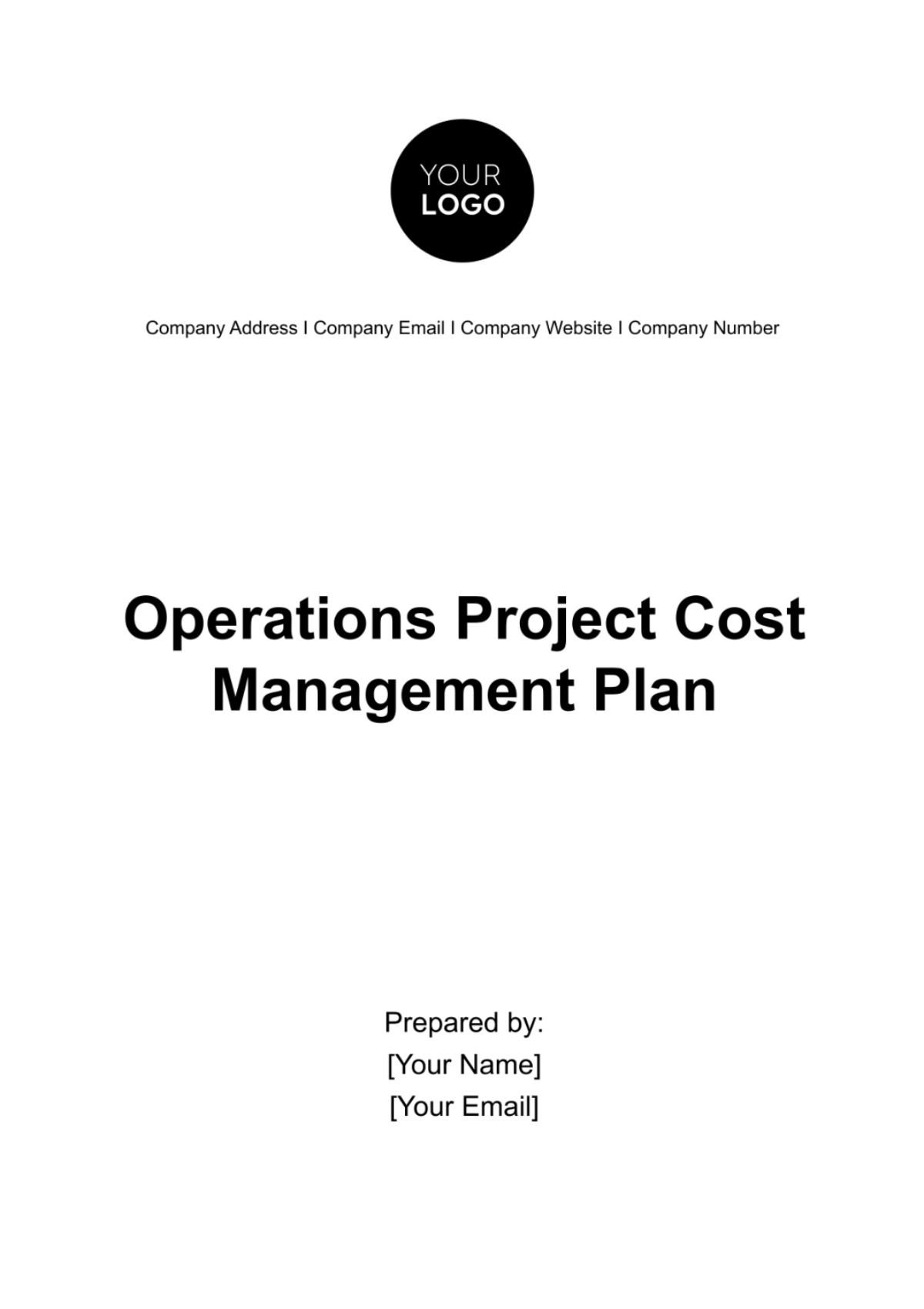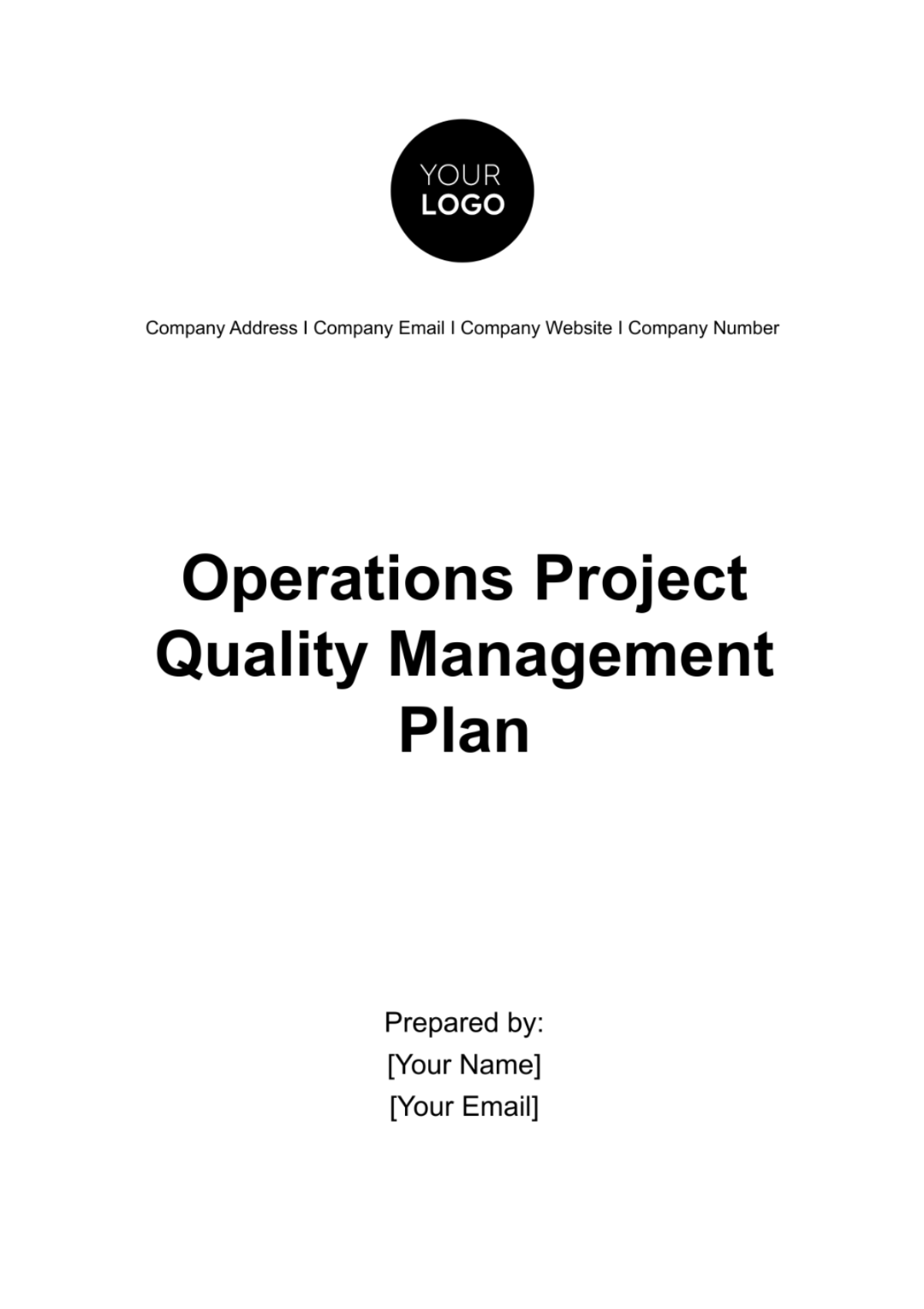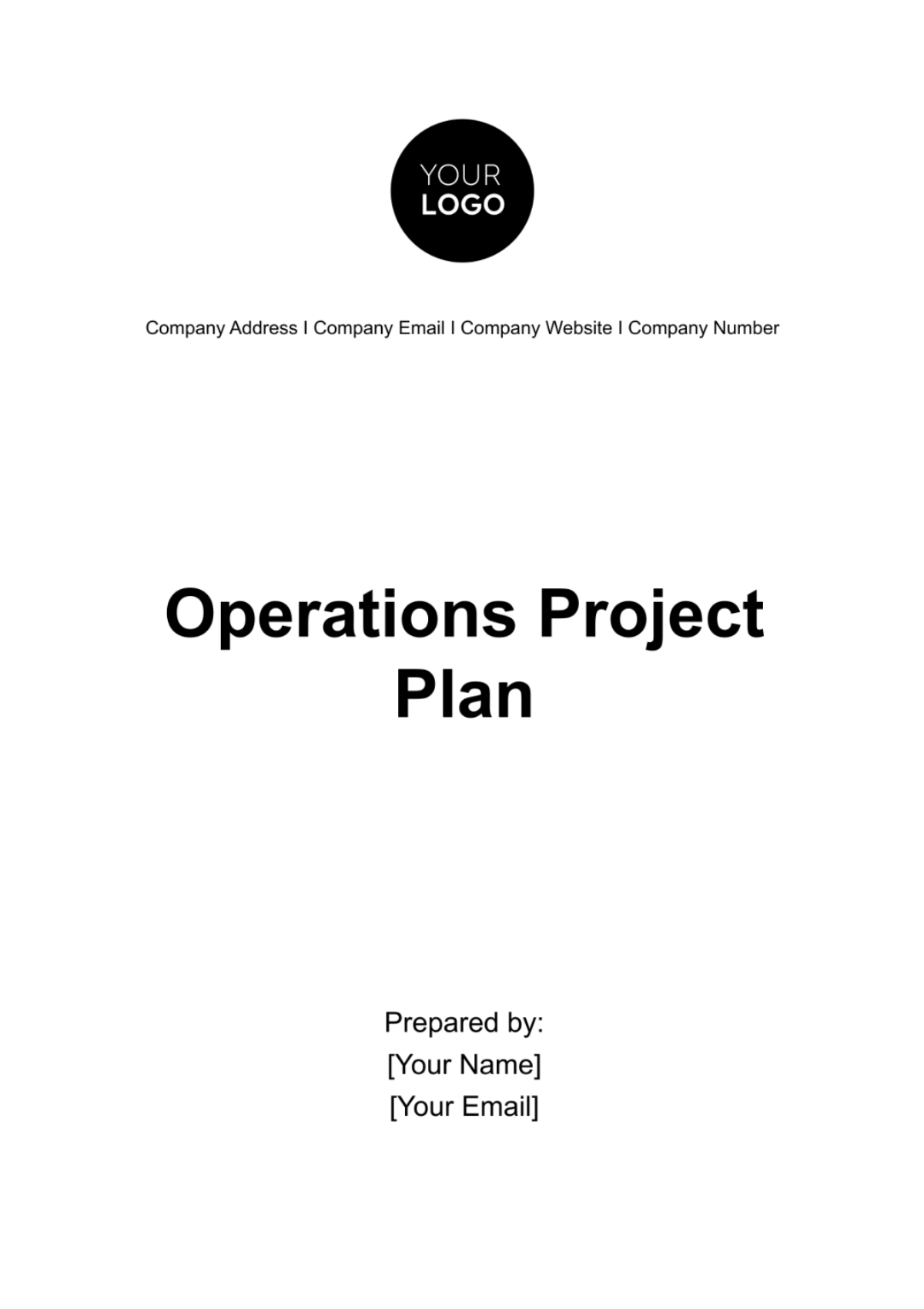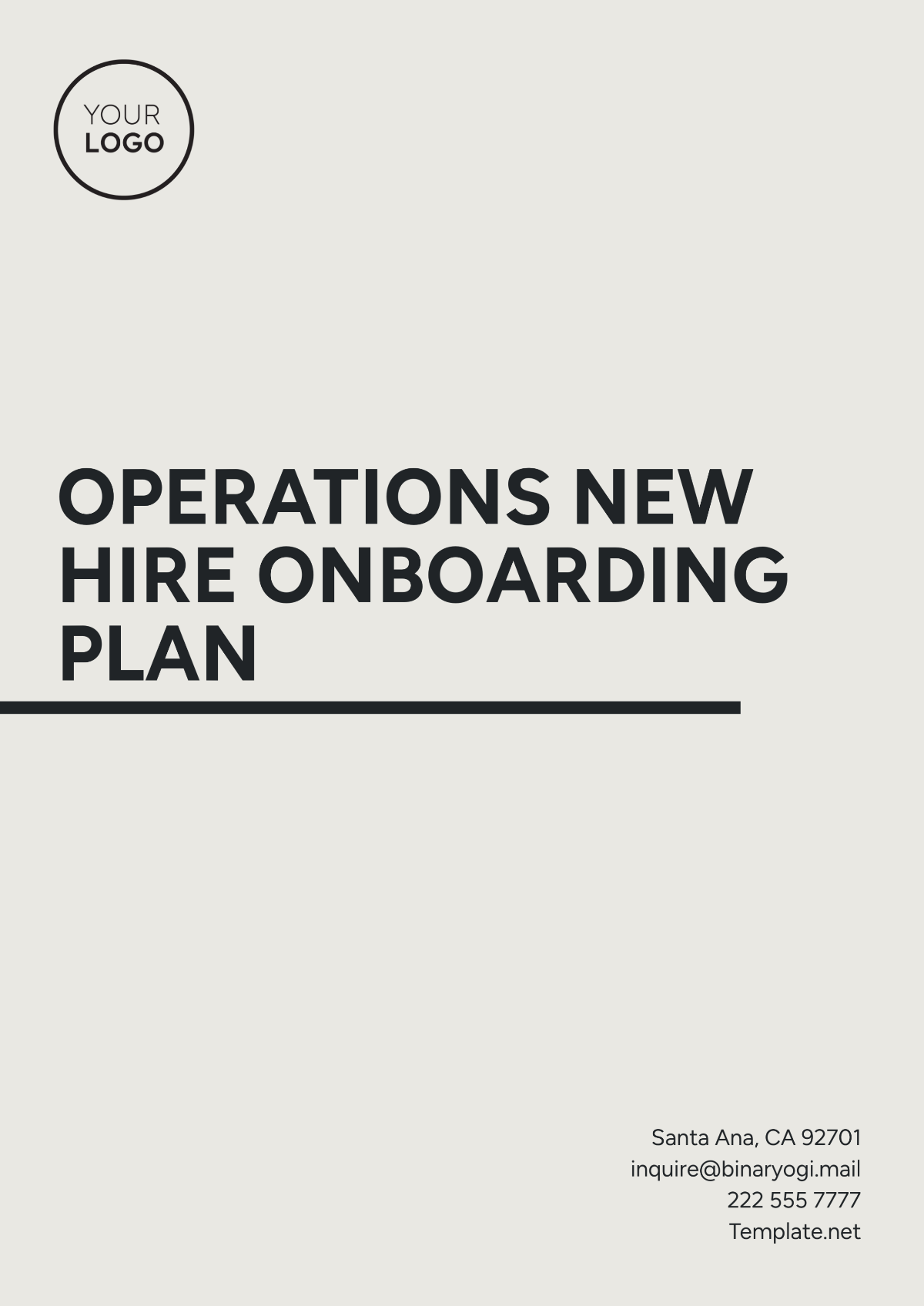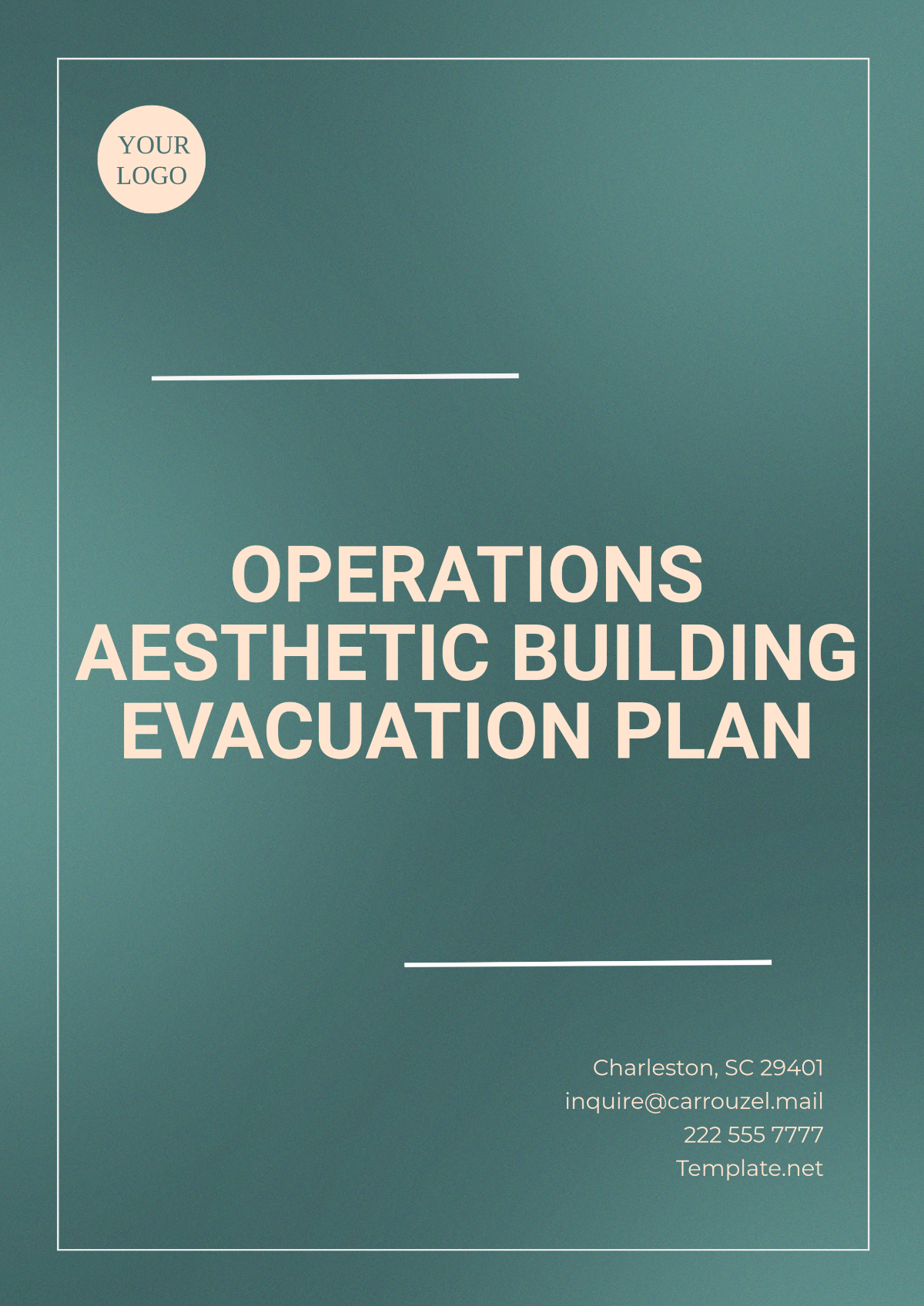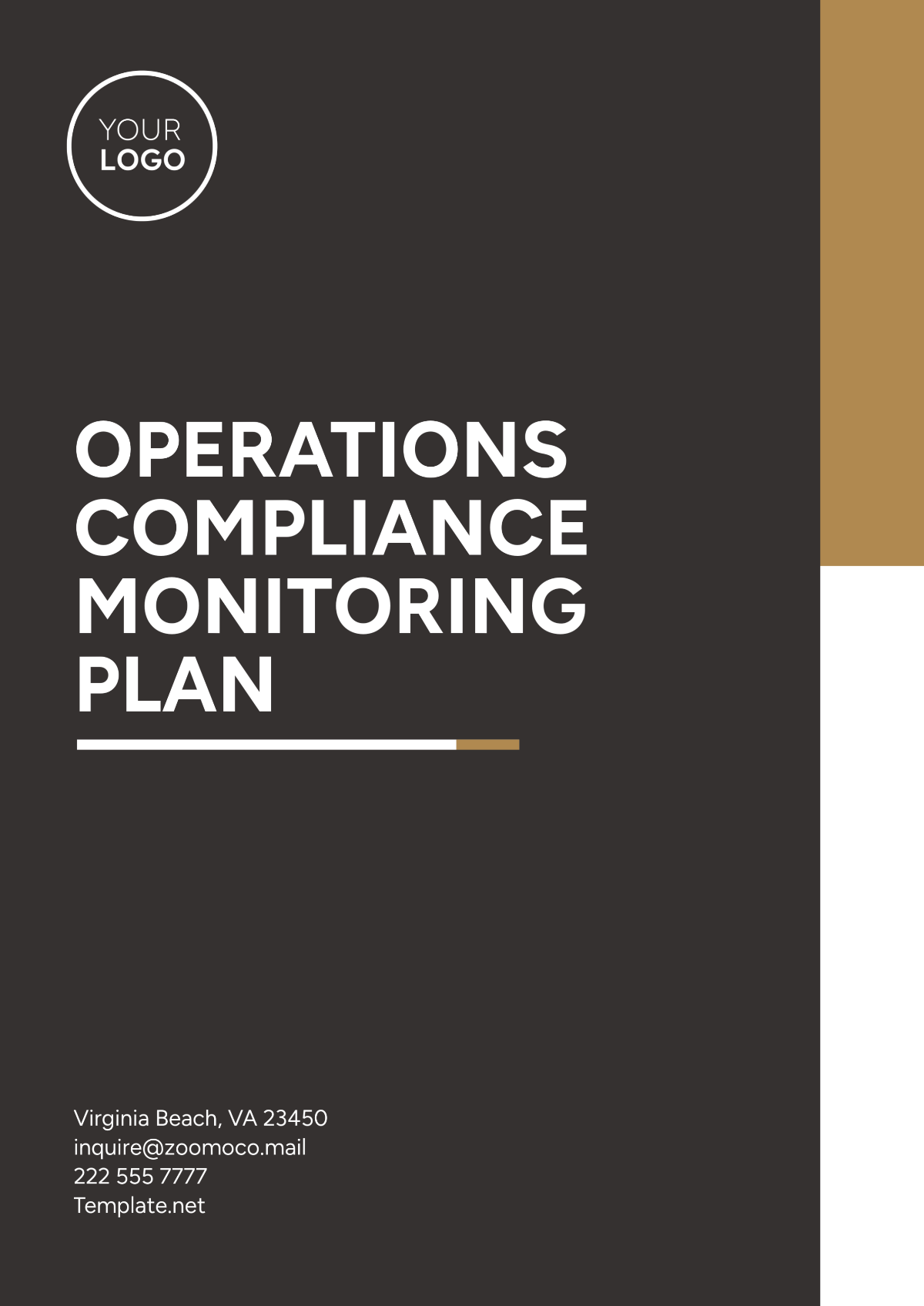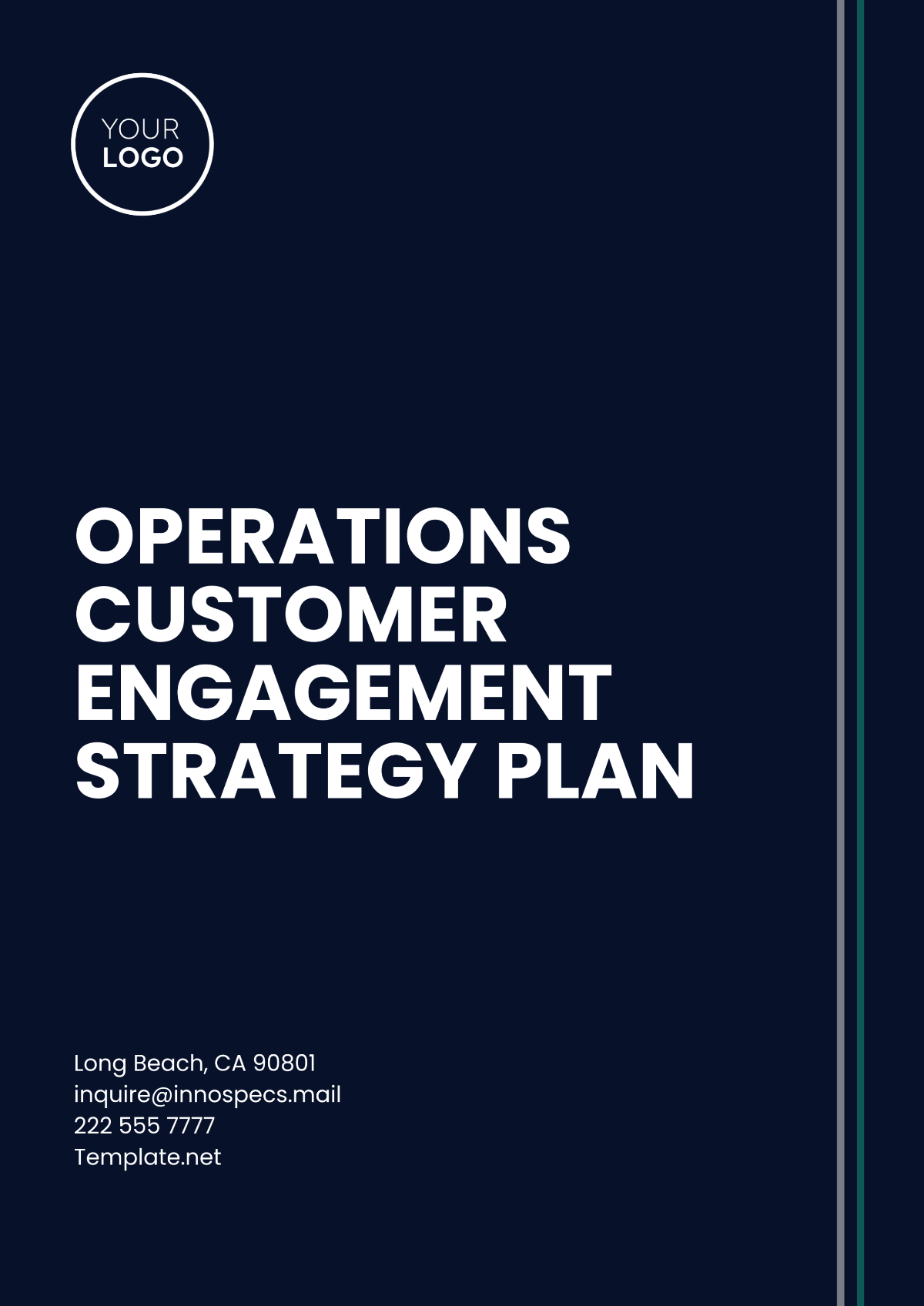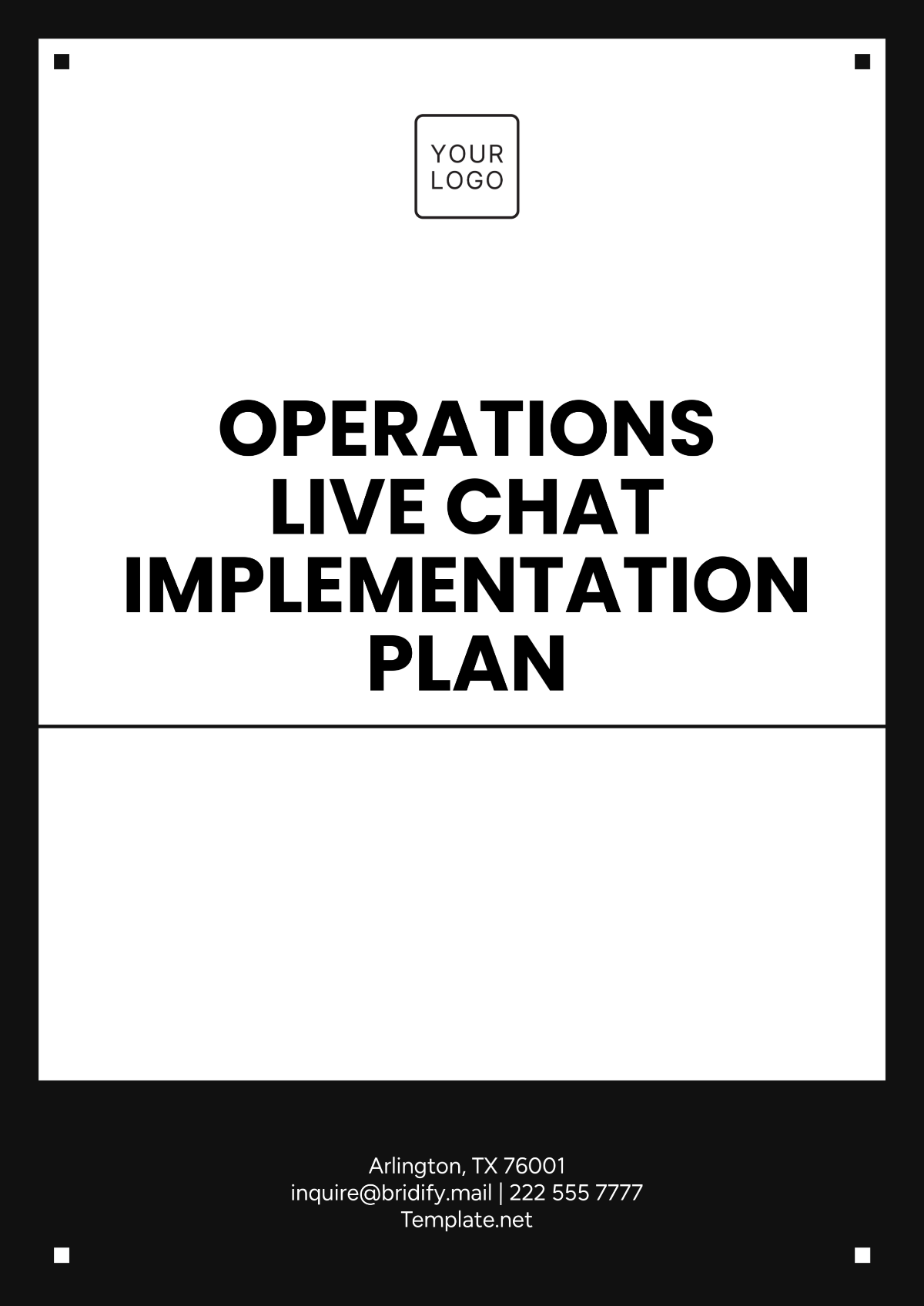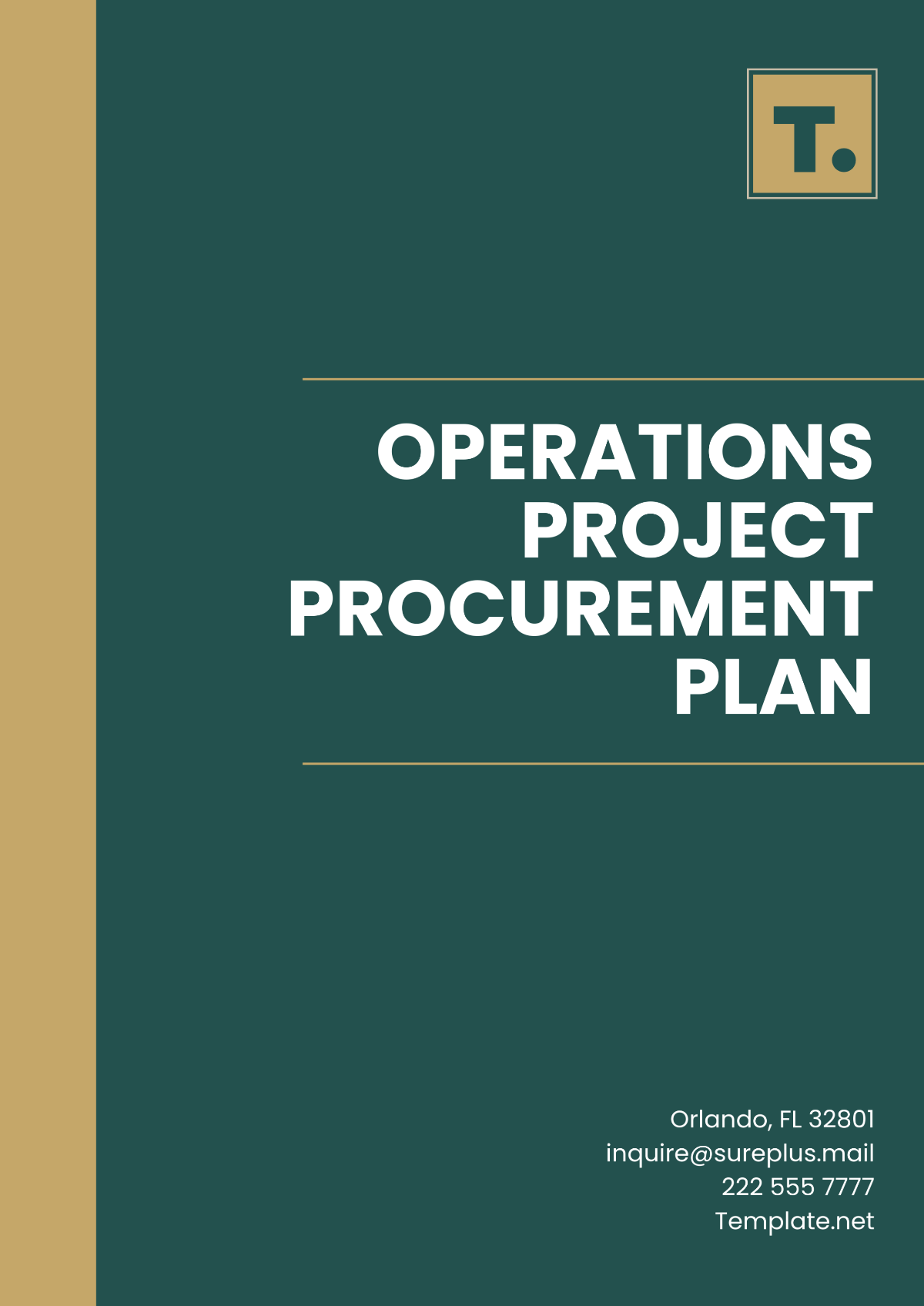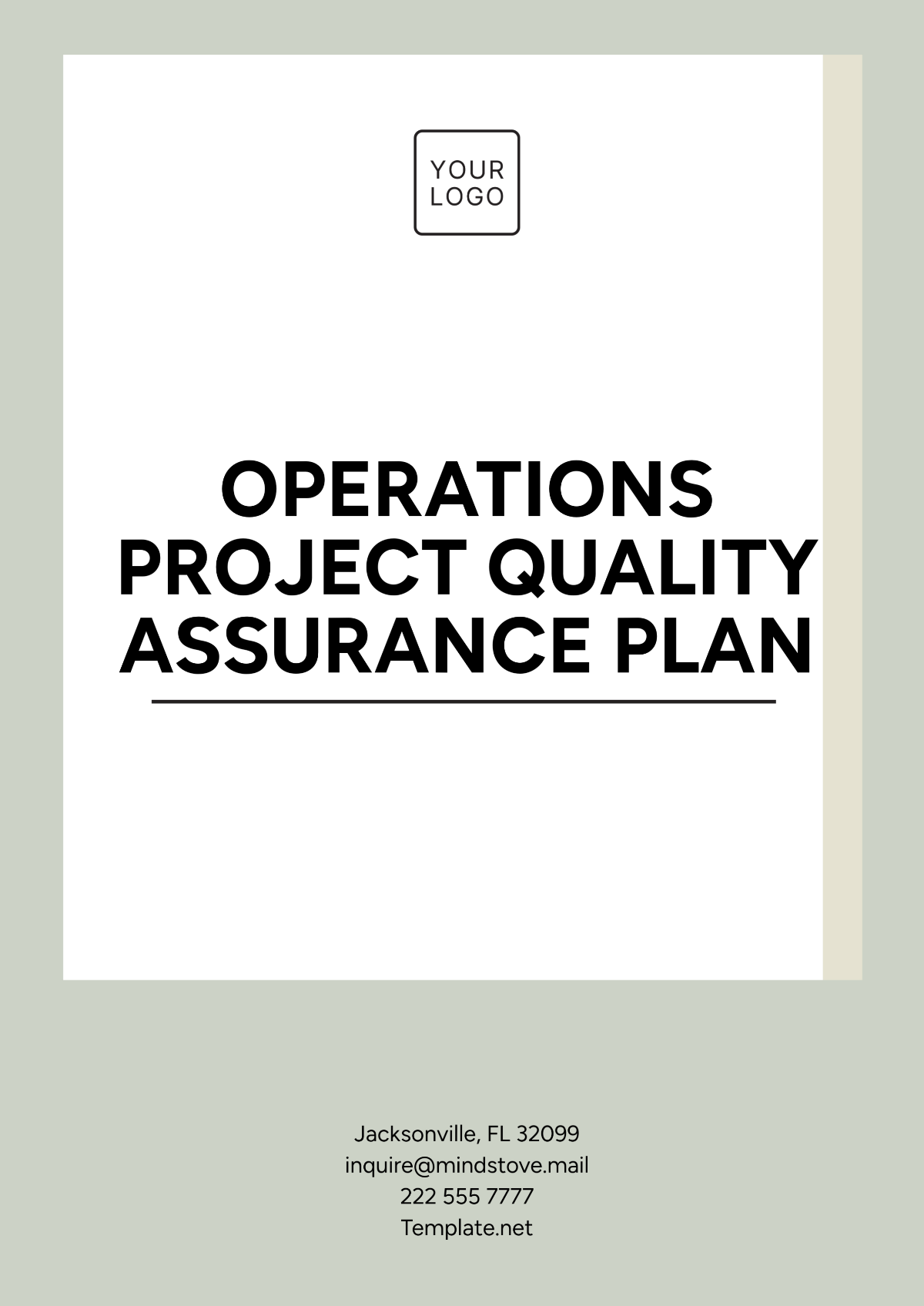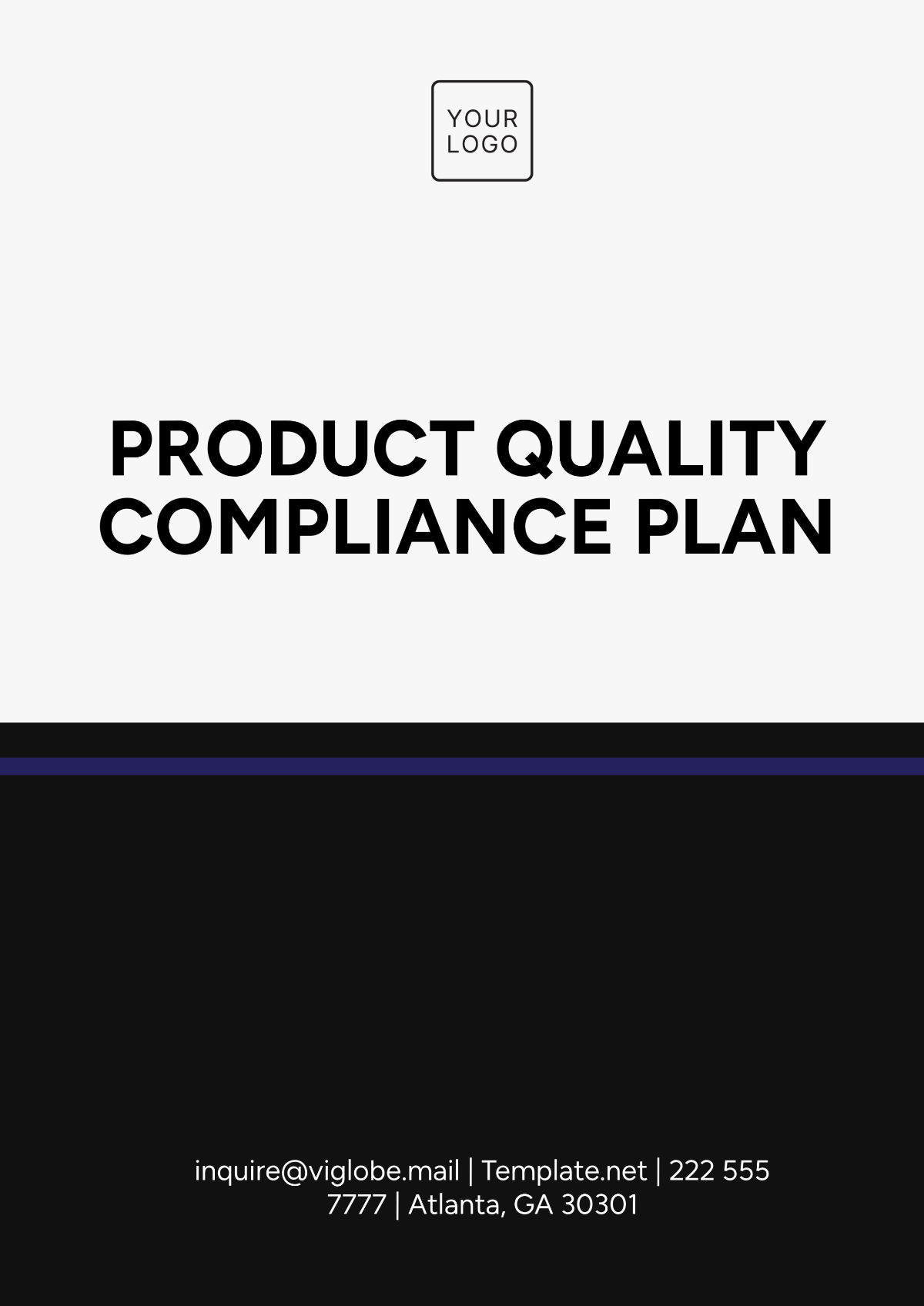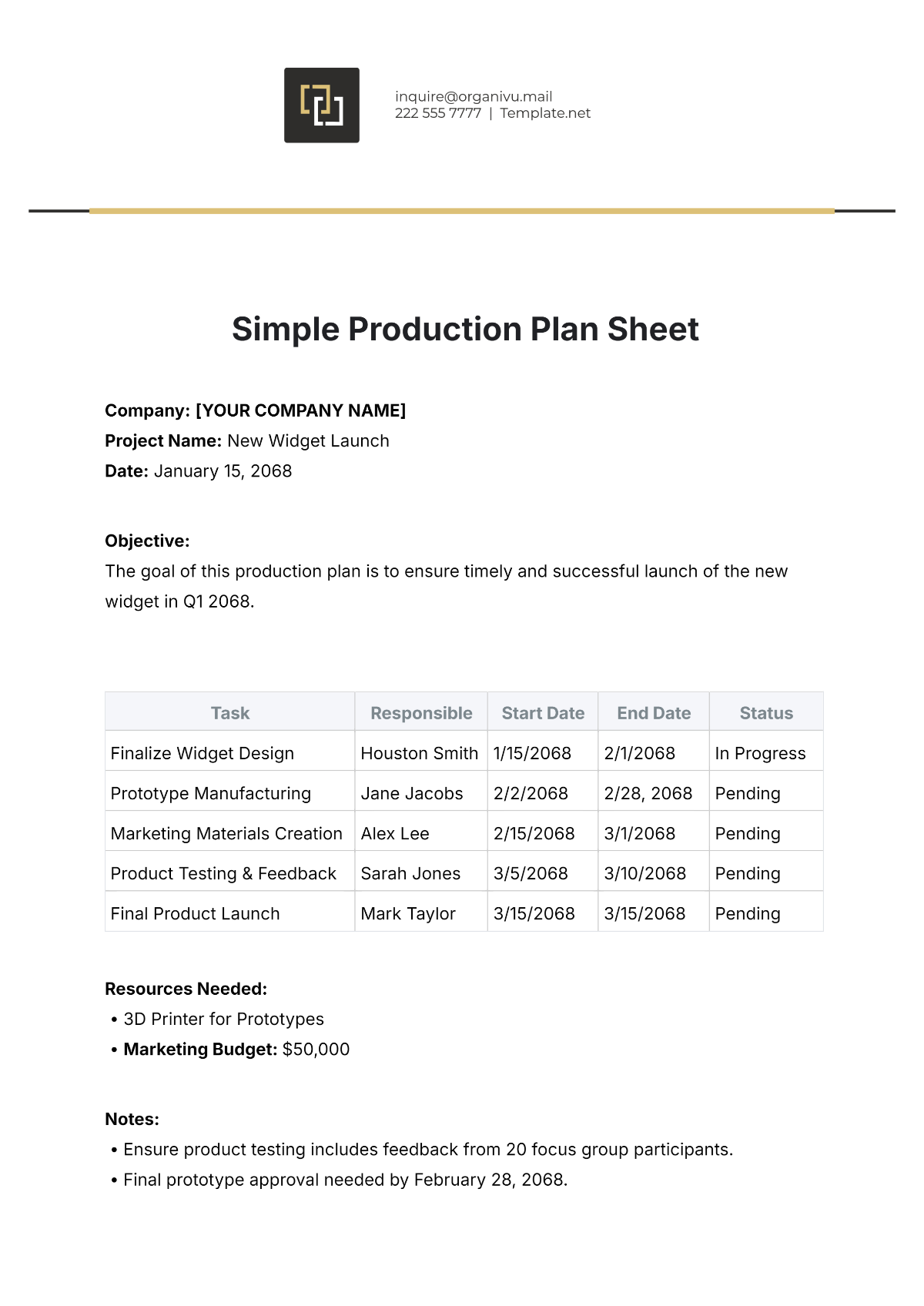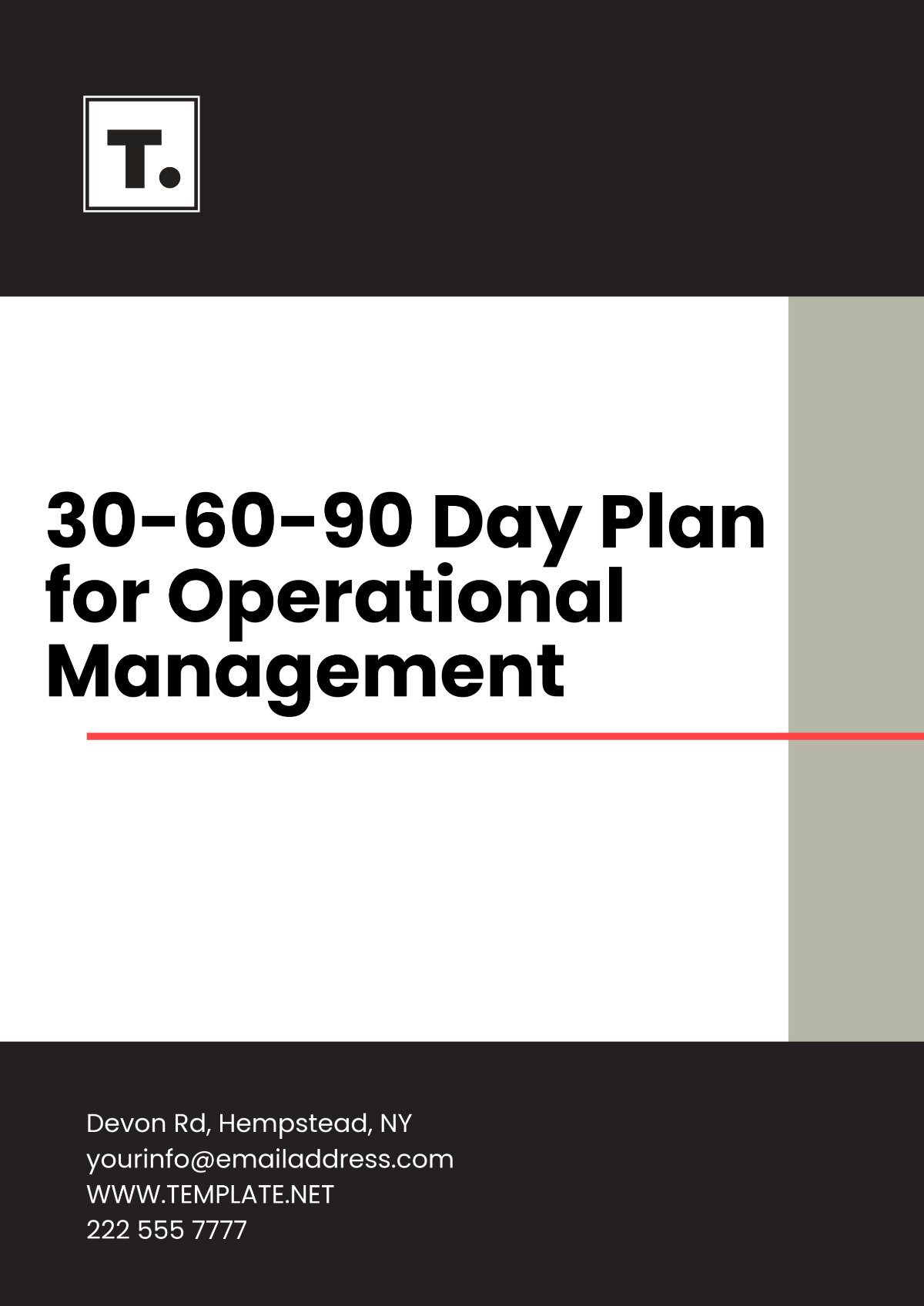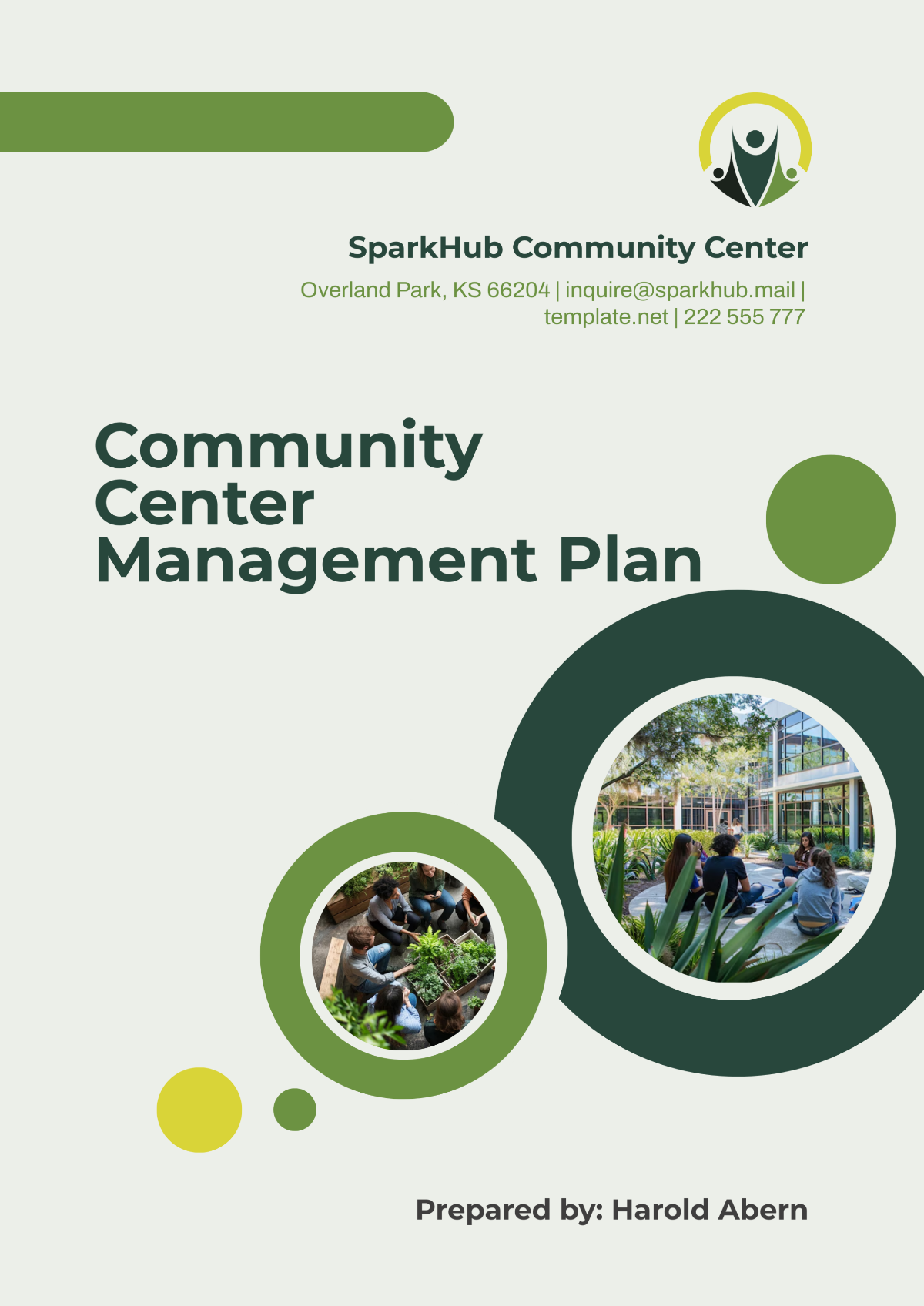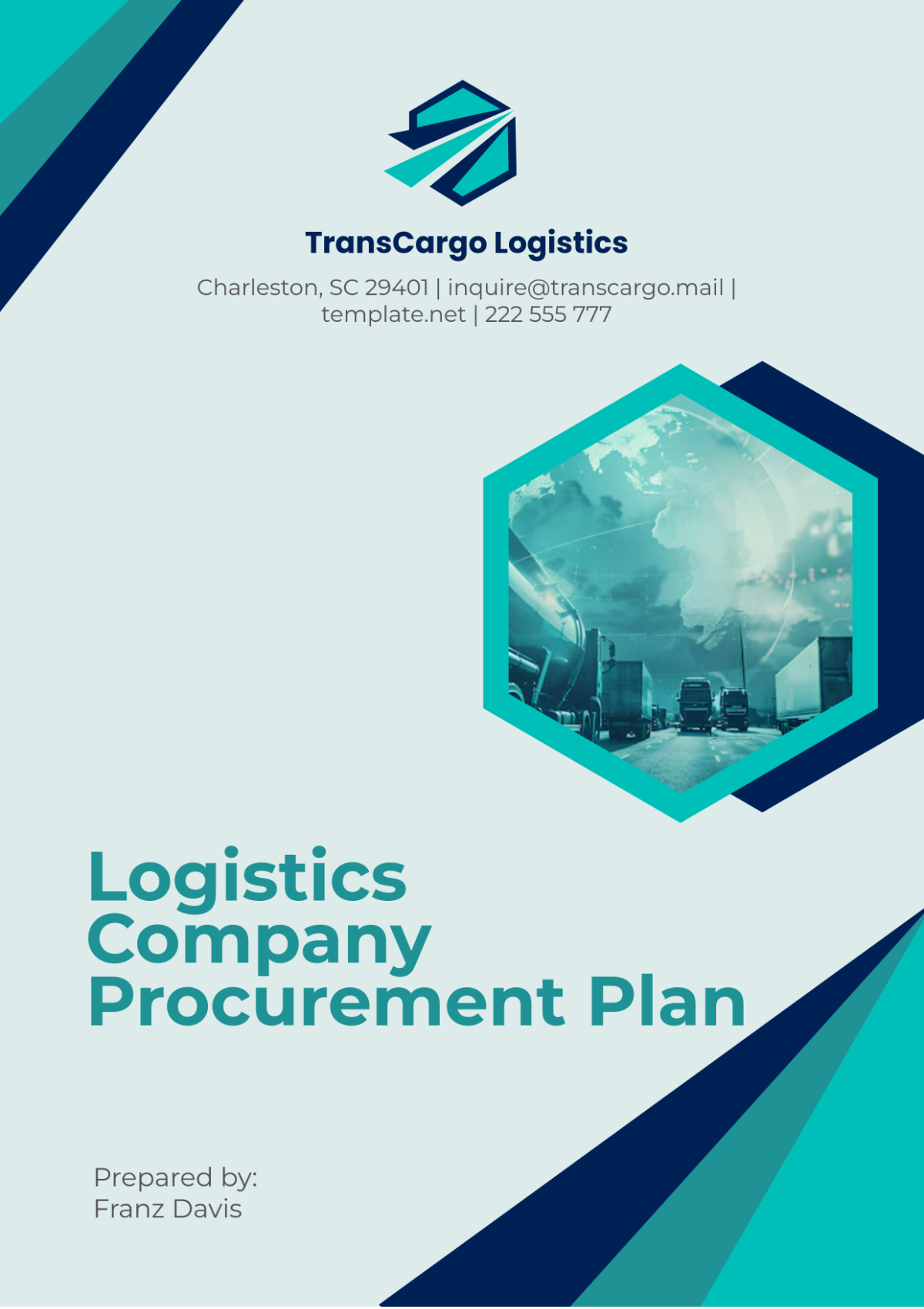Operations Project Procurement Plan
Prepared By: | [Your Name] |
Company: | [Your Company Name] |
Date: | [Date] |
Introduction
The Operations Project Procurement Plan defines the strategy for acquiring the necessary goods, services, and resources for the successful execution of the project. This plan outlines how the procurement process will be managed to ensure timely, cost-effective, and high-quality acquisition of the required items, contributing to the overall success of the project.
Objectives
The objectives of this Procurement Plan are:
Ensure all necessary goods, services, and resources are acquired according to the project’s requirements and schedule.
To identify suitable suppliers and contractors based on clear selection criteria.
To ensure compliance with legal, environmental, and regulatory requirements.
To establish roles and responsibilities for managing procurement effectively.
To control procurement costs and minimize risks, ensuring that the project is delivered on time and within budget.
Scope
This Procurement Plan covers:
Materials and Supplies: Construction materials, office supplies, and consumables needed for day-to-day operations.
Equipment and Machinery: Heavy equipment, vehicles, and other machinery required for project execution.
External Services: Specialized services, including consulting, labor, and subcontracts for specific tasks.
Software and Technology: IT solutions and software tools necessary for the project’s operational needs.
Other Resources: Any additional services or resources identified during the project’s lifecycle.
Procurement Strategy
1. Procurement Method
The project will utilize a variety of procurement methods depending on the nature and complexity of the requirements:
Competitive Bidding: This will be used for high-value items such as construction materials and equipment, ensuring transparency and value for money.
Direct Negotiation: For specialized services such as IT consulting or emergency maintenance, where fewer suppliers are available or time constraints exist.
Framework Agreements: Long-term agreements with suppliers for ongoing services like facility maintenance or IT support, ensuring consistency and cost savings.
2. Supplier Selection Criteria
Suppliers will be selected based on the following factors:
Experience and Reputation: Preference will be given to suppliers with a proven track record in delivering similar products or services.
Cost-Effectiveness: Suppliers must offer competitive pricing while maintaining acceptable quality standards.
Quality Assurance: Suppliers must comply with relevant industry certifications and quality standards.
Delivery and Lead Time: Suppliers must demonstrate the ability to meet delivery timelines, especially for critical project phases.
Compliance: All suppliers must adhere to legal, ethical, and environmental standards.
3. Risk Management
To mitigate procurement risks, the following strategies will be implemented:
Comprehensive Supplier Evaluation: A detailed evaluation process will be conducted to assess supplier capabilities, financial stability, and past performance.
Contractual Safeguards: All contracts will include clear terms on delivery schedules, quality standards, and penalties for non-compliance.
Contingency Plans: Alternative suppliers will be identified for critical items, and additional lead times will be factored into schedules to account for unexpected delays.
4. Procurement Timeline
The procurement process will follow a clear timeline to ensure smooth execution:
Phase 1: Needs Assessment and Specification Development (Weeks 1-2)
The project team will define detailed specifications for materials, services, and equipment based on project requirements.Phase 2: Supplier Identification and Tender Process (Weeks 3-5)
Suppliers will be identified, and requests for proposals (RFPs) will be sent out to potential vendors.Phase 3: Contract Negotiation and Award (Weeks 6-7)
Negotiations will be held with selected suppliers, and contracts will be awarded based on the best value and fit.Phase 4: Delivery and Implementation (Weeks 8-12)
Procurement will be finalized, and delivery of goods and services will take place in line with the project timeline.
Roles and Responsibilities
The following individuals and teams will be involved in the procurement process:
Project Manager: Oversees the procurement planning and execution, ensuring alignment with project goals.
Procurement Officer: Manages day-to-day procurement activities, including issuing RFPs, negotiating with suppliers, and processing purchase orders.
Legal Advisor: Reviews and ensures that all procurement contracts comply with legal and regulatory requirements.
Quality Control Manager: Monitors the quality of delivered goods and services, ensuring that they meet project specifications.
Finance Officer: Manages procurement budgets and ensures that payments are processed promptly, according to contract terms.
Budget
The total procurement budget is allocated as follows:
Materials and Supplies: $500,000
For construction materials, tools, and office consumables.Equipment and Machinery: $1,200,000
For purchasing heavy equipment, vehicles, and machinery needed for project tasks.Services: $300,000
For hiring specialized services such as consultants, contractors, and labor.Software and Technology: $150,000
Purchasing IT solutions and software tools necessary for project management and communication.Contingency Fund: $100,000
Reserved for unforeseen procurement expenses.
Procurement Monitoring and Evaluation
Procurement activities will be closely monitored to ensure the project stays on track:
Regular Progress Reviews: Weekly progress meetings will be held to review procurement status, identify issues, and adjust plans as necessary.
Performance Metrics: Key performance indicators (KPIs) will track supplier delivery times, costs, and quality of products or services.
Vendor Performance Reviews: After each major procurement milestone, vendor performance will be reviewed to ensure contract compliance and quality standards are met.
Conclusion
The Operations Project Procurement Plan provides a detailed framework for acquiring the necessary goods, services, and resources to ensure project success. By adhering to this plan, the project will benefit from efficient procurement, risk mitigation, cost control, and high-quality outcomes. This structured approach will contribute to the project’s overall success by ensuring the timely and cost-effective delivery of all required materials and services.
